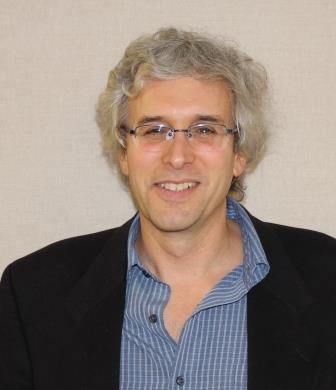
Leonard Hammer lectures in international law and international human rights at Hebrew University in Jerusalem and the University of Arizona, where he has been the David and Andrea Stein Visiting Professor of Modern Israel Studies. He has conducted joint research into the legal, social, and political aspects of holy places together with Professor Marshal Breger from the Columbus School of Law, Catholic University of America. He is an adjunct professor at The Hebrew University’s Rothberg School, serves as the Academic Director to Shurat HaDin, and works as an International Expert for the Open Society Institute. Hammer’s research focuses on international law and human rights. He has received more than a dozen research grants and is widely published. His most recent publication is Sacred Space in Israel and Palestine: Religion and Politics, a co-edited with Marshall J. Breger and Yitzhak Reiter, appeared in 2010. He received a PhD at University of London - SOAS; LLM in Public International Law at New York University; JD Georgetown at University Law Center; BA magna cum laude Yeshiva University.
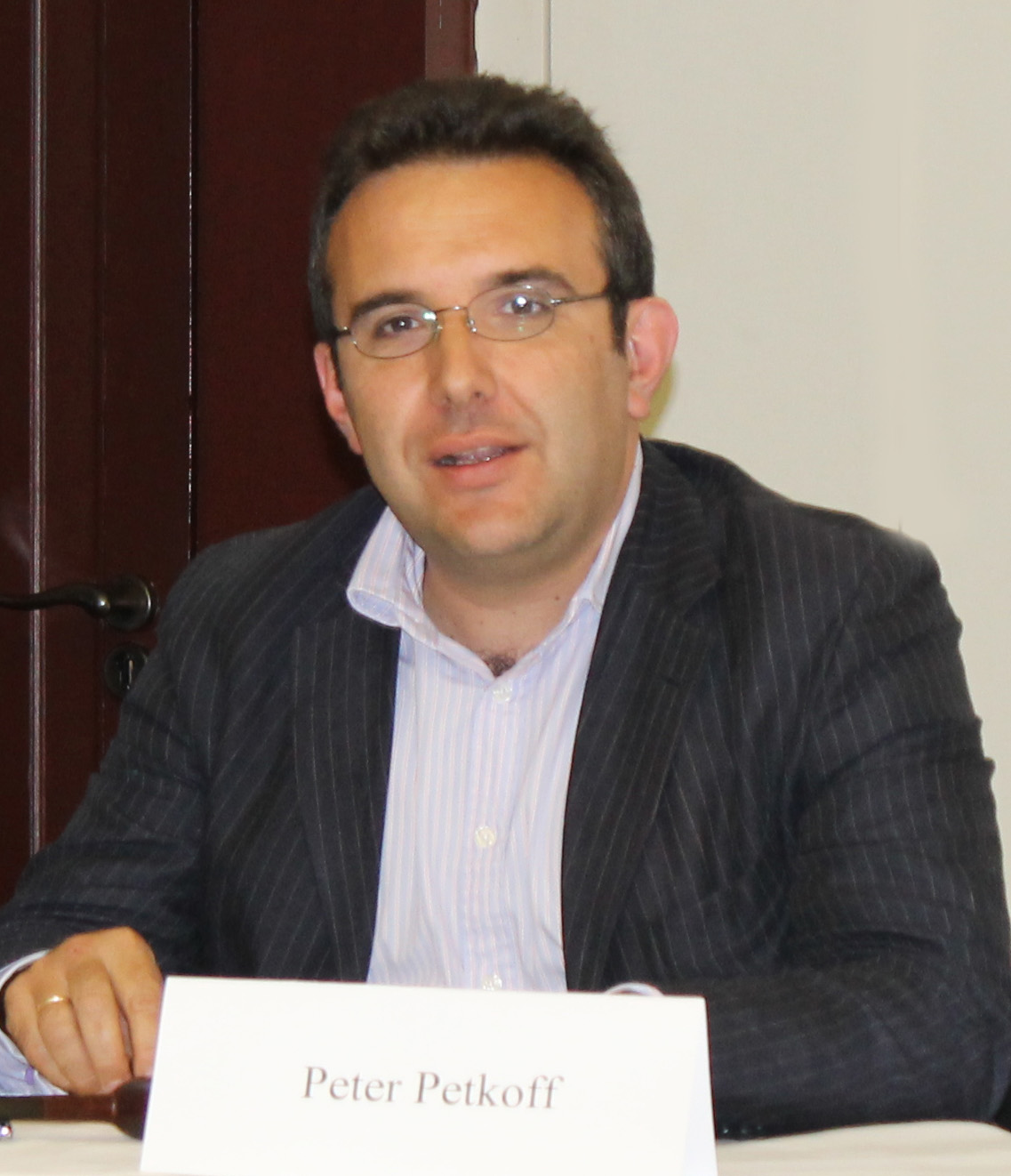
Dr. Peter Petkoff has studied law and theology in Sofia, Leeds, Oxford and Rome and his research interests are in the area of law and religion, EC Law, Intellectual Property and Comparative and International Law. His academic appointments include working on research projects at Oxford University (European Company Law and Arms Exports), Exeter University (Comparative European Family Law) and Bristol University (Changing Nature of Religious Rights Under International Law), a visiting fellowship at the Stephan Kuttner Institute of Medieval Canon Law and the Leopold-Wenger-Institute for Legal History at Ludwig-Maximilians-University Munich and teaching positions at Bristol, Oxford and Buckingham. He has taught EU Law, International law and Intellectual Property, Canon law and Islamic Law. Dr. Petkoff is an honorary fellow of the Centre for the Study of Law and Religion at the University of Bristol, a Fellow of the Centre for Christianity and Culture at Regent’s Park College, Oxford, a Secretary of the Oxford Society for Law and Religion and a convener of the Oxford Colloquium for Law and Religion, a board member of the academic think-tank "Focus on Freedom of Religion or Belief" which studies the dynamics of freedom of religion or belief discourse within the context of the international institutions. Dr. Petkoff is also a board member of the research network "Church, Law and Society of the Middle Ages" and a convener of Eastern Canon Law panels at the International Medieval Congress at Leeds. He is currently engaged in research projects which study the coexistence of civic and religious legal systems on national, regional and international level and the formation of Christian, Jewish and Islamic legal harmonisations in the twelfth and the thirteenth centuries. He is the Managing Editor of the Oxford Journal of Law and Religion.
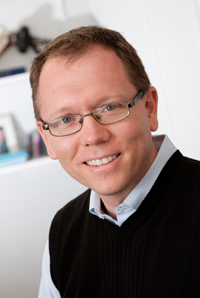
Brian J. Adams is the Director of the Centre for Interfaith & Cultural Dialogue at Griffith University. As a former Rotary Peace Fellow, Brian is primarily focused on promoting respect and understanding across cultural, religious and organisational boundaries. This work is supported by a Ph.D. (political science) in deliberative dialogue and two Master degrees in community development and conflict resolution. Brian’s 20+ years of work in Africa, Europe, North America and the Asia-Pacific certainly brings a compelling international perspective to the ICD. His background in mediation, conflict management and dialogue facilitation strengthens the Centre’s ability to address some of the great challenges facing the world today, while his fluency in English, French and Swahili allow him to expand the work of the ICD to marginalised groups in Australia and to troubled regions across the globe.
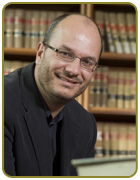
Nicholas Aroney is an Australian Research Council Future Fellow at the Centre for Public, International and Comparative Law. His research under the fellowship involves a systematic comparison of the Australian federal system with other systems of multi-level governance throughout North and South America, Europe and Asia. The purpose of the research is to identify the principles and values that should underlie the Australian federal system and show how they can apply to the interpretation and reform of the Australian Constitution. Professor Aroney has published widely in the fields of constitutional law, comparative constitutional law and legal theory, including several books and numerous journal articles and book chapters. He speaks frequently at national and international conferences on these topics and has held visiting positions at several Australian and overseas universities. In 2012 he was a MacCormick Fellow at Edinburgh University's Europa Institute and a Visiting Fellow at the Institute of European and Comparative Law in Oxford University. Professor Aroney is also a former editor of The University of Queensland Law Journal (2003-2005) and International Trade and Business Law Annual (1996-1998); past secretary of the Australian Society of Legal Philosophy and a current member of the Governing Council of the Australian Association of Constitutional Law. In 2013, he and the Hon Ian Callinan AC, a former justice of the High Court of Australia, undertook a review of the Crime and Misconduct Act for the Queensland Government.
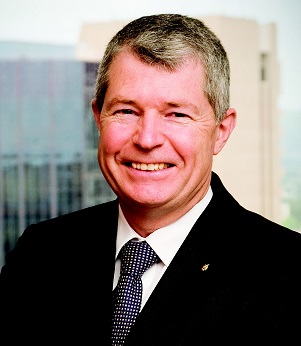
David Fawcett served in the Australian Defence Force for over two decades as an Army pilot flying helicopters and fixed wing aircraft. A graduate of the Empire Test Pilots’ School (UK), he served as an experimental test pilot and completed his full time career in Defence as the Commanding Officer of the RAAF Aircraft Research and Development Unit. Elected to the House of Representatives as the Member for Wakefield (South Australia) in 2004, he served in the Australian Parliament until 2007. Following the change of Government, David continued to fly as a test pilot and ran a small business working in the Defence and Aviation sectors prior to being elected to the Senate in 2010. He is currently the Chair of the Parliamentary Joint Committee on Corporations and Financial Services, the Chair of the Defence sub-Committee (Foreign Affairs Defence and Trade) and a member of Committees dealing with Treaties, Intelligence and Security.
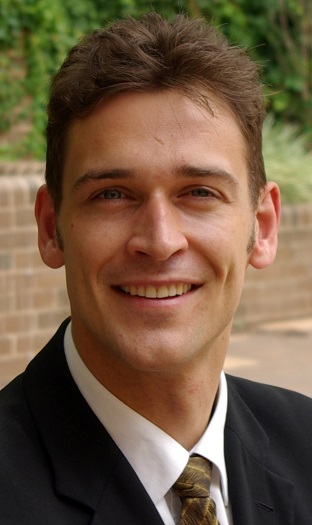
Greg Walsh was educated at the Australian National University where he completed a combined Bachelor of Laws/Science degree and a Graduate Diploma in Legal Practice. He completed a Master of Laws at the University of Sydney. He has lectured at the University of Western Sydney and the University of New South Wales. Greg has worked in various legal roles in Australia and overseas, including as a prosecutor and a medical negligence solicitor. Greg’s research interests include torts, medical law, human rights law, and the intersection between law and religion. He is a member of the Australasian Association of Bioethics and Health Law and the NSW Medico-Legal Liaison Committee.
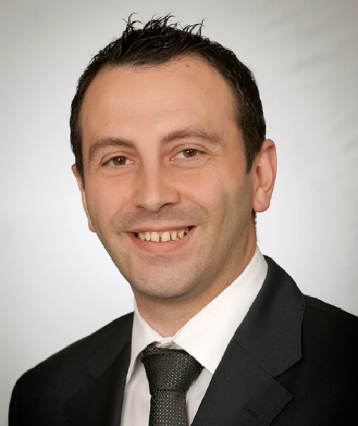
Francesco Di Lillo serves the International Center for Law and Religion Studies as a Research Advisor. He is a public affairs professional and president of the Italy Utah Cooperation Center, a nonprofit that aims at promoting cultural, academic and commercial partnerships between organizations from Italy and Utah. He gained some international experience in public affairs and public information in Cyprus with the Italian Embassy, the United Nations Development Program, and with the United Nations High Commissioner for Refugees witnessing evacuation operations of civilians through the Port of Larnaca, Cyprus, during the Israeli-Lebanese conflict of 2006. These experiences reinforced his interest in international relations and human rights issues. Francesco holds a master degree in Theory of Communications from the University Roma Tre, graduating cum laude with a dissertation on the proactive use of media as tools for conflict resolution and peacebuilding. He also holds a master in International Relations and Human Rights Protection from the Societa' Italiana per l'Organizzazione Internazionale. Francesco was born in Rome, Italy, and now lives in Germany.
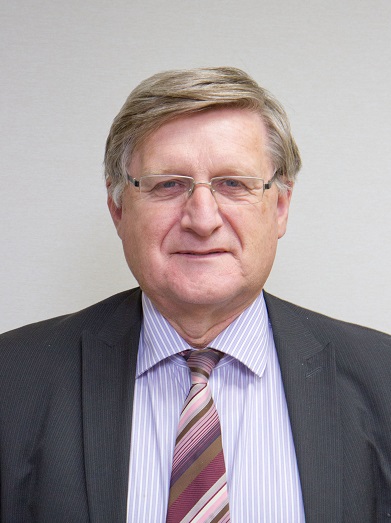
Director of Human Rights Without Frontiers International. Member of the International Consortium on Law and Religious Studies. Former chargé de mission at the Cabinet of the Belgian Ministry of Education and at the Belgian Parliament. He has developed religious freedom advocacy in European institutions, at the OSCE and at the UN. He is a lecturer in the field of religious freedom, discrimination and intolerance. He has written many articles in university journals about human rights. Some of his most recent publications are: Freedom of Religion or Belief, Anti-sect Movements and State Neutrality (in Russian), edited by Willy Fautré and published by the Polytechnical University of St Petersburg (2013); Ethnic Turks in Greece, a Muslim Minority, published by ABTTF (Federation of Western Thrace Turks in Europe) in English and in Turkish; "Religious Education in Belgium," in Handbook of Religious Education, pp 54-61, edited by Derek Davis and Elena Miroshnikova, The Routledge International Handbook, 2012; "The Sect Issue in France and in Belgium," in Law and Religion: National, International and Comparative Perspectives, eds. W. Cole Durham and Brett G. Scharffs (Wolters Kluwer: Aspen Publishers, 2010).
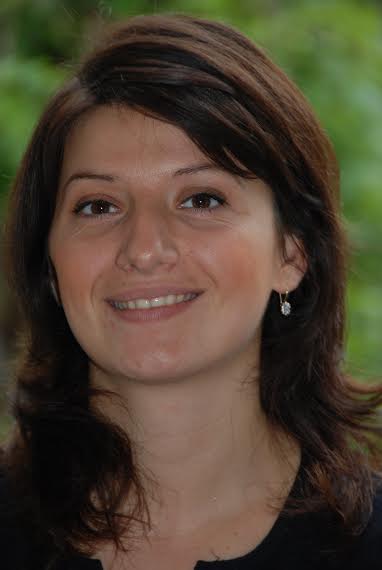
Mag. Elizabeta Kitanović is Executive Secretary for Human Rights and Communication of the Church and Society Commission of CEC in Brussels. She is working as a senior human rights advocate vis-a-vis International Organizations. She is editor of the Human Rights Training Manuel for European Churches and is editor and founder of the first European Churches Human Rights Library and the CSC Annual Report. In 2009/2010 she has been a member of the Advisory Panel of the EU Fundamental Rights Agency and was again nominated for 2012/2014. Ms. Kitanovic completed her studies in Theology and post-graduate studies in International Affairs of the Political Science Faculty in Belgrade. She graduated from the Diplomatic Academy of the Ministry of Foreign Affairs of the Serbian Government. Prior to her current post she was at first working for the Serbian Orthodox Church and then for the Ministry of Religious Affairs of the Serbian Government as Adviser for Interreligious Affairs and its PR. Ms. Kitanovic is regularly giving lectures and presentations in the area of human rights and communications. She speaks English, French, Greek and Serbian.
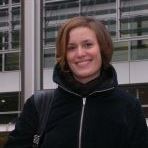
Sofia Lemmetyinen works as Programme Manager at the European Instrument for Democracy and Human Rights’ (EIDHR) unit of the European Commission’s Directorate for Development Cooperation, EuropeAid, Brussels, where she is in charge of issues relating to freedom of religion or belief. From 2008 to 2013 she worked as EU Advocate at Christian Solidarity Worldwide (CSW) – a non-governmental organisation (NGO) specialising in freedom of religion or belief. In this capacity, she also served as a member of the board of the European Platform on Religious Intolerance and Discrimination (EPRID) (2008-11) and as one of the coordinating troika members of the Human Rights and Democracy Network (HRDN) (2011-13). Prior to that she worked in former President Martti Ahtisaari’s organisation Crisis Management Initiative (CMI) and in the European umbrella organisation for peacebuilding NGOs, European Peacebuilding Liaison Office (EPLO). Ms Lemmetyinen holds an MA in comparative religion from Åbo Akademi University in Turku, Finland and an MA in EU international relations from College of Europe in Bruges, Belgium.
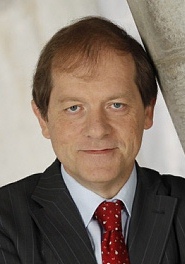
Rik Torfs was elected Rector of Catholic University of Leuven (Belgium) (KU Leuven) in June 2013, and on 1 August he took up his four-year mandate. He had been since 1988 a full professor at KU Leuven, where he was Dean of the Faculty of Canon Law from 1994-2003. He was also, from 2000, a visiting professor at both the University of Strasbourg (France) and the University of Stellenbosch (South Africa). The author of nearly 350 articles and numerous books dealing with canon law, law, and Church and State relationships, Professor Torfs is editor of the European Journal for Church and State Research, is a member of the Board of Directors of the European Consortium for State-Church Research, and He serves as an advisor to the government of Romania regarding the protection of religious minorities. He has been a newspaper columnist and host of his own television program. In 2009 he became a member of the Commission for Intercultural Dialogue (Assises de l'Interculturalité) of the Belgian government, and on 13 June 2010 he was elected a member of the Belgian Senate.
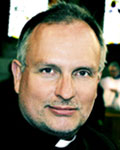
Gary Wilton is the Archbishop of Canterbury’s Representative to the EU and a Canon of the Pro-Cathedral of Holy Trinity, Brussels. He is also the Visiting Programme Director for faith, religion and the international public sphere at Wilton Park, an executive agency of the FCO. Gary was ordained in 1988 and served in parish ministry before spending 10 years in theological education, first at Church Army’s college in Sheffield and then at York St John University where he was Head of Postgraduate Studies in Theology. He is a member General Synod, a Fellow of the University of Gloucestershire and an Associate Research Fellow at the Catholic University of Leuven. He was previously a member of the Northern Regional Board of the Co-operative Group Ltd, the South Yorkshire Police Authority Standards Committee and Durham University’s External Examiner to the North East Ordination Course. Gary regularly contributes articles for academic journals and the Church press. He is currently collaborating on an edited volume entitled God and the EU.
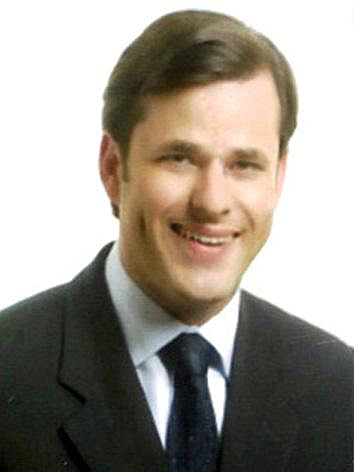
Leonardo Barros Lemos Quintão has a degree in economics and business administration from the University of Central Florida in Olando (USA). His political career: (2001-2003) Alderman Belo Horizonte (MG); (2003-2007) Deputy in Minas Gerais State; (2007-2010) Congressman (Commissions: Human Rights and Minorities; Finance and Taxation; Financial Control and Surveillance; Mines and Energy; Roads and Transport; Economic and Financial Crisis - Financial System Market, Limit Personnel expenses; Public Debt; Values Tariffs Electricity Crisis and Air Traffic System); (2010 to present) Congressman. Leonardo remains a member of the Committee on Roads and Transportation, where he set up the Permanent Subcommittee on Highways and Transport. Is also a member of the Special Subcommittee on High Speed Rail; also a member of the Committee on Mines and Energy, and started work in Labor and Pension Committee. In 2011, he became a member of the Special Committee of Public Policies on Drugs, which helps in the preparation of the National Plan on Drugs of the Federal Government.

Mrs. Romanna Remor is currently an alternate parliamentarian at the Brazilian House of Representatives, by the state of Santa Catarina. Previously, she served as a Congresswoman (2011-2012) and an elected City Council member (2009-2011) in Criciúma, the 5th largest city in Santa Catarina state. As a member of both local and federal parliament, she has been a diligent advocate of transparency, anti-corruption instruments and human rights - with special focus on children's and women's rights and freedom of speech, religion and belief. Mrs. Remor earned a master degree in Public Administration at the Marriot School of Management, Brigham Young University, in the US, and a BA in International Relations at the same university. Prior to taking office as a parliamentarian, she had worked as a researcher and university professor in the fields of regional economic development, regional markets and sustainable urban planning. Mrs. Remor is member of Advisory Councils at: International Public Management Association for Human Resources, Brazil Section (IPMA-HR Brazil) and Religious Freedom and Business Foundation, Brazil Section.
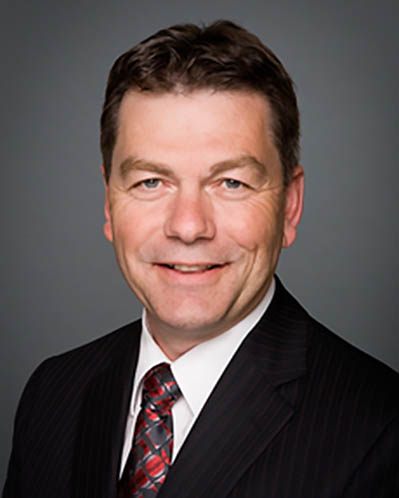
David Anderson is the Member of Parliament for Cypress Hills – Grasslands in Saskatchewan, Canada. David was first elected in 2000 and subsequently re-elected four times. David has served as Parliamentary Secretary to the Minister of Natural Resources and for the Canadian Wheat Board. He currently serves as Parliamentary Secretary to the Minister of Foreign Affairs. From 2006 to 2010, David served as Chairman of the National Prayer Breakfast in Ottawa. He has been committed to raising awareness of the need to protect religious freedom around the world, hosting annual Parliamentary Forums on Religious Freedom. In addition, David worked with fellow MP Bev Shipley to present and pass Motion 382, which unanimously declared the Parliament of Canada’s support for religious freedom around the world. David studied at the University of Regina where he obtained a Bachelor of Arts in Political Science. He then went on to complete a Masters of Divinity at the Canadian Theological Seminary in 1990.

Barry W. Bussey is Vice President for Legal Affairs, Canadian Council of Christian Charities (CCCC). He was born and raised in Newfoundland, Canada. He holds degrees in theology (BA), law (LLB, LLM) and political science (MA). He began his career as a pastor in a two-church district in Newfoundland. After completing his Bachelor of Laws degree at the University of Western Ontario, Barry practiced general law in St. John’s. He continued his studies, earning a Master of Arts Degree in Political Science from Memorial University of Newfoundland and a Master of Laws Degree from Osgoode Hall Law School in Toronto. Before working at CCCC, Barry spent two years serving as the Associate Director of the Public Affairs and Religious Liberty Department at the General Conference of Seventh-day Adventists, near Washington D.C. He has also served as the editor of the International Religious Liberty Association’s journal, Fides et Libertas. In January 2013 he received the prestigious Queen Elizabeth II Diamond Jubilee Medal in recognition of his work to support religious liberty in Canada and abroad.
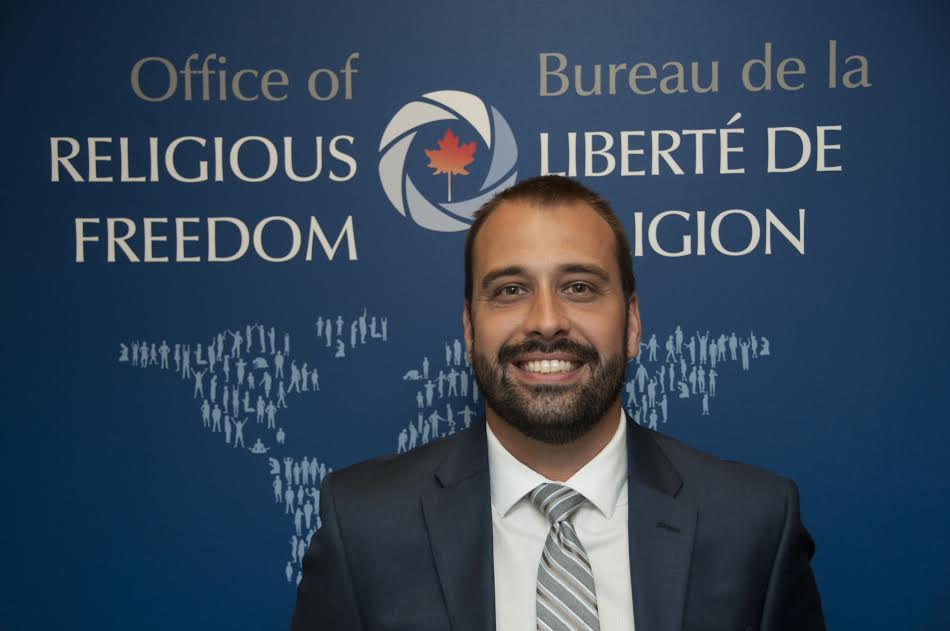
Mr. Christopher Duggan joined the Canadian Foreign Service in 2002 and since September 2012, has been the Senior Advisor to the Ambassador in the Office of Religious Freedom located within Canada’s Department of Foreign Affairs, Trade and Development. Mr. Duggan coordinated and managed the Canadian foreign policy priority of establishing the Office of Religious Freedom in advance of the official launch and appointment of Ambassador Bennett by Prime Minister Stephen Harper in February 2013. He has engaged in outreach and explored religious freedom issues during country visits to Serbia; Kosovo; Israel; Malaysia; Indonesia; and Pakistan as well as strategic dialogues with various bilateral representatives and multilateral organizations. Prior to joining the Office of Religious Freedom, Mr. Duggan had diplomatic postings to Nigeria (2005-2008) and Jamaica (2008-2011).
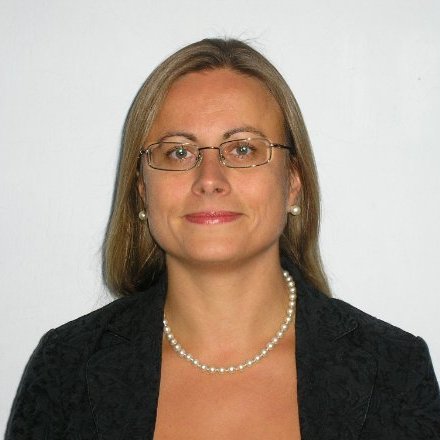
Dr. Merilin Kiviorg (DPhil Oxford, mag iur Tartu) is a senior research fellow in public international law and human rights at the University of Tartu Faculty of Law and an author of many articles published on law and religion, and on European human rights law and practice regarding freedom of religion or belief. She has taught international law, human rights and international relations at the University of Oxford, as well as serving as a Lecturer and Assistant Professor in International Law, Human Rights and EU Law at the University of Tartu in Estonia. She was a Max Weber Fellow at the European University Institute in Florence. She has also served as an expert advisor on freedom of religion or belief for non-governmental and governmental bodies (e.g the Estonian Ministry of Internal Affairs, the Legal Chancellor and the Estonian President). She is currently teaching courses on Comparative Human Rights and on Religion and Human Rights. Her current research interests are human rights and religion in Europe with special focus on Eastern Europe and specifically Russia.
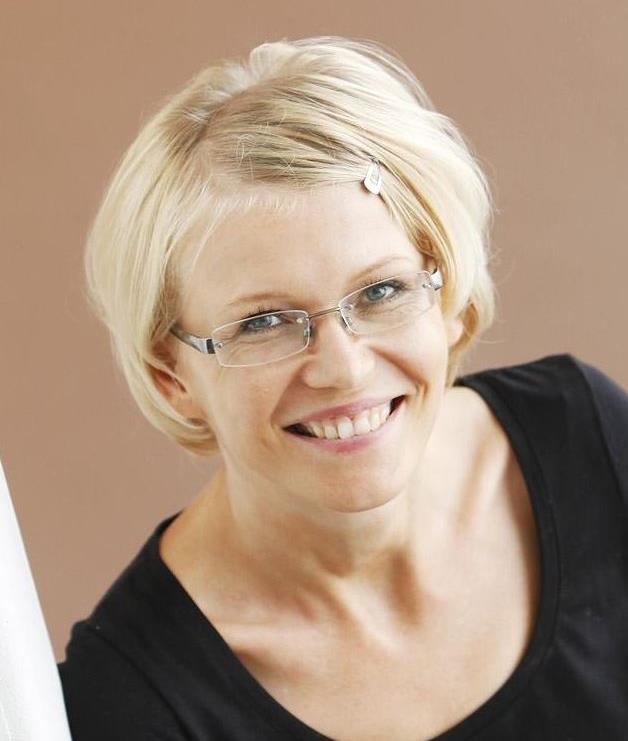
Academy researcher (Academy of Finland 1.9.2013-31.8.2018). Topic of research: Management of the Sacred: A Critical Inquiry. Docent of research in religion and law at the Faculty of Theology, University of Helsinki. Docent of theological ethics with philosophy of religion at the Faculty of Theology, Åbo Akademi University. Currently, also a senior research scholar in the research project Natural Rights and Needs in Medieval and Early Modern Politics (Academy of Finland 2012-2015) at the Faculty of Theology at University of Helsinki.
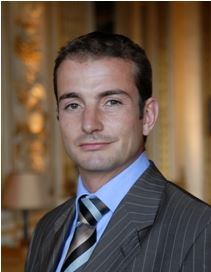
Jean-Bernard Bolvin is a French National and has been working for the last two years in the Human Rights and Democracy Directorate of the European External Action Service (EEAS) – the EU's newest service (established in January 2011) dedicated to the EU's foreign and security policy. He is currently in charge of human right issues in the Middle East as well as freedom of religion or belief worldwide. He has been actively involved in the drafting of the EU Guidelines on Freedom of Religion or Belief adopted by the EU in June 2013. M. Bolvin's previous experience includes more than 8 years in the French Public Service, where he notably held advisor positions for different ministers (Minister of State for Victim’s Rights, Spokesperson of the Government, Minister of Culture, Minister of State for Foreign Affairs and Human Rights). He has also been posted in Yemen (2010-2011) as head of a democratic governance and security cooperation project. Before joining the EEAS, Bolvin was advisor to the French Ambassador at large for Human Rights. Between December 2000 and June 2001, M. Bolvin was assigned to the UNMIK in Pristina, in the Department of Judicial Affairs (criminal legal section), while performing his military service. M. Bolvin graduated in Law from Poitiers University, after obtaining a diploma in European Law Studies from the University of Cambridge (Erasmus). He also holds a post-graduate diploma (DEA) in European Comparative Public Law from Paris-La Sorbonne University.
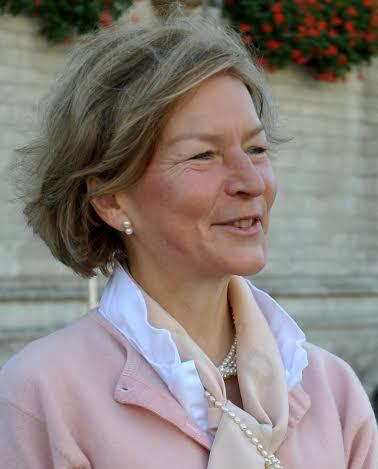
Marie-Claire Foblets, Lic. Iur., Lic. Phil., Ph.D. Anthrop. (Belgium) is professor of Law at the Universities of Leuven (Louvain in Belgium) and since 2012 also Director of the Department of ‘Law & Anthropology’ at the Max Planck Institute for Social Anthropology in Halle/Saale (Germany). She has held various visiting professorships both within and outside Europe. From September 2009 to November 2010 she was the co-chair of the Assises de l’ Interculturalité (The Round Tables on Interculturalism) in Belgium. Prof. Foblets has conducted extensive research and published widely on issues of migration law, including the elaboration of European migration law after the Treaty of Amsterdam, citizenship/nationality laws, compulsory integration, anti-racism and non-discrimination, etc. In the Field of anthropology of law, her research focuses on cultural diversity and legal practice, with a particular interest in the application of Islamic family law in Europe, and more recently in the accommodation of cultural and religious diversity under State law.
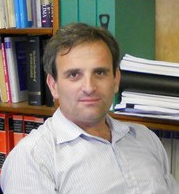
Dr. Joseph E. David has held many positions which include a Sub-Faculty Associate Member, Senior Lecturer at Sapir Academic College and the Hebrew University of Jerusalem, and a Research Fellow at Van Leer Jerusalem Institute. His interests are Law and Religion, Comparative Jurisprudence, Legal Theory and Legal History. Dr. David is currently working on perceptions of kinship and incest in medieval thought (mainly within the Karaite and the Eastern Churches legal writings). Some of his publications include The State Rabbinate: Election, Separation and Freedom of Expression (Jerusalem: Israel Democracy Institute Press, 2000) (Hebrew), The Family and the Political: The Political Meaning of the Family in a Liberal Society (Jerusalem: Israel Democracy Institute, 2012) (Hebrew), Toleration within Judaism, co-authors: Martin Goodman, Corinna Kaiser and Simon Levis-Sullam (Oxford: The Littman Library of Jewish Civilization, 2013)(English), and Between Logos and Nomos – Law and Theology in Medieval Jewish Thought (Tübingen: Mohr Siebeck verlag), forthcoming (English).
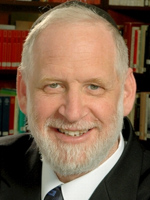
Rabbi Professor Naftali Rothenberg is a senior research fellow at the Van Leer Jerusalem Institute (since 1994), where he is Jewish Culture and Identity chair and editor of Identities, Journal for Jewish Culture & Identity. He also serves as the Rabbi and spiritual leader of Har Adar, a Jerusalem suburb town, where he resides with his family. His main fields of research are: The wisdom of love; Political Philosophy; Environmental philosophy; Philosophy of Halakha. He has published numerous articles and 12 books. His most recent books are: Wisdom by the Week – the Weekly Torah Portion as an Inspiration for Thought and Creativity, Yeshiva University Press, New York 2012. Values and Citizens – Civic Democratic Education, The Van Leer Jerusalem Institute, 2011. Rabbi in the New World: The Influence of Rabbi J. B. Soloveitchik on Culture, Education and Jewish Thought (with Avinoam Rosenak) Magnes Hebrew University Press, Jerusalem 2011; The Wisdom of Love—Man, Woman & God in Jewish Canonical Literature, Academic Studies Press, Boston 2009. Rabbi Naftali Rothenberg is the 2011 laureate of the Liebhaber Prize for the encouragement of religious tolerance in Israel. Rabbi Rothenburg is the 2011 laureate of the Liebhaber Prize for the encouragement of religious tolerance in Israel.
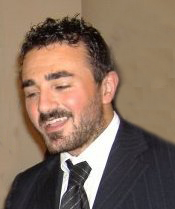
Pasquale Annicchino is Research Fellow at the Robert Schuman Centre for Advanced Studies. He is also a member of the EUI Ethics Committee. He received his Ph.D. in Law from the University of Siena where he also graduated in law summa cum laude in December 2006. In 2004 he studied as an Erasmus student at the School of Law of Charles IV University in Prague (Czech Republic). From August 2004 to September 2006 he studied at the European Academy of Legal Theory in Brussels (Belgium) where he obtained a double degree (LL.M./D.E.A.) in October 2006. From January to June 2007 he was Visiting Scholar at the Centre for Law and Religion of the Emory University Law School in Atlanta (United States). In 2009 he specialized (LL.M.) in European Public Law at University College London (United Kingdom) where he also served as Editor-in-Chief of the UCL Human Rights Review. Pasquale is also a fellow in Constitutional Law and Comparative Constitutional Law at the Department of Political Science of the University of Salerno. He serves as book review editor for Religion and Human Rights: an International Journal and is a member of the editorial board of Quaderni di Diritto e Politica Ecclesiastica published by Il Mulino. His main interests include the following: Legal Theory, Law and Religion, EU Law, Religion, and Politics.
Rinaldo Cristofori is a graduate of the University of Milan in canon law with a thesis on the Italian Inquisition. In 2006, he graduated in Siena with an MA in human rights and humanitarian action. In 2011 he was awarded his PhD in law at the University of Milan with a dissertation on transitional justice and religion. He currently works on transitional justice, law and religion, and the role of forgiveness in transitional countries.
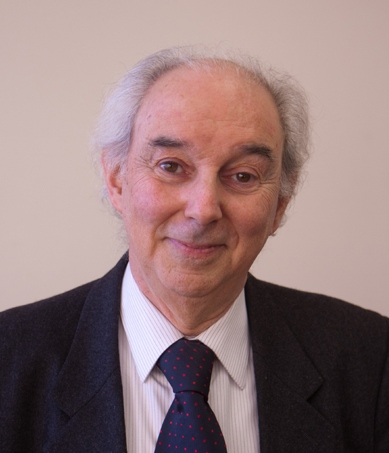
Silvio Ferrari, founder and honorary lifetime president of ICLARS (International Consortium for Law and Religion Studies), was visiting professor at the University of California (Berkeley, 1994 and 2001), the Institute for Advanced Legal Studies (London, 1998-99) and the Ecole Pratique des Hautes Etudes (Paris, Sorbonne, 2004), the University of Leuven (2000-2012). His publications in English include Law, Religion, Constitution: Freedom of Religion, Equal Treatment, and the Law, Ashgate 2013 (ed. with W. Cole Durham, Jr., Cristiana Cianitto, and Donlu Thayer); Religion in Public Spaces, Ashgate 2012 (ed. with S. Pastorelli); Law and Religion in the 21st Century, Ashgate 2010 (ed. with R. Cristofori); Law and Religion in Post-Communist Europe, Leuven, Peeters, 2003 (ed. with W. Cole Durham, Jr. and E. A. Sewell), Islam and European Legal Systems, Dartmouth, Ashgate, 2000 (ed. with A. Bradney). Professor Ferrari’s main fields of interest are law and religion in Europe, comparative law of religions (particularly Jewish law, Canon law, and Islamic law) and the Vatican policy in the Middle East. He is a member of the Advisory Council on Freedom of Religion and Belief of the OSCE-ODIHR, and member of the International Academy of Comparative Law. He is also one of the editors-in-chief of the Oxford Journal of Law and Religion and member of the Editorial Board of the Ecclesiastical Law Journal (Cambridge University Press). In 2012 Professor Ferrari was invited to deliver the Messenger Lectures at Cornell University, and he has received the Distinguished Service Award of the International Center for Law and Religion Studies of the J. Reuben Clark Law School (Brigham Young University, Provo, Utah).
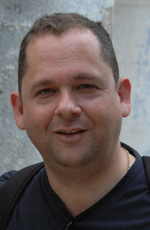
Fr. Evaldo Xavier Gomes, O. Carm. is a Carmelite priest, born in Brazil. In January 2014 Fr. Gomes was elected Prior Provincial of the Order of the Carmelites Provincial Chapter of Rio de Janeiro. For many years, beginning in 2001, he lived in Rome, where he was Director of Edizioni Carmelitane, the printing house of the Carmelite Order in Rome. Edizioni Carmelitane was established by the 1995 General Chapter as the publishing house for both the General Curia and the Institutum Carmelitanum. The Edizioni Carmelitane website was recently inaugurated in the three languages of the Order. Fr. Gomes has a degree in law from the Faculty of Law at the Universidade Federal de Minas Gerais, Brazil and Bachelor of Theology Faculty of Theology of Lugano Università della Svizzera Italiana, Switzerland. He has a PhD and Masters in Canon Law and Civil Law from Pontificia Università Lateran in Rome. He has written articles on Canon Law and Church and State relations and is a member of the editorial board of the Brazilian Canon Law Review. Fr. Gomes has focused his studies on Catholic theology and law, as well as philosophy and freedom of religion, and international law. He was a postdoctoral student of Law Department of the European University Institute, Florence, Italy (2009-2010); Professor of International Law of the Pontifical Urban Università of Rome, Italy; and Unversidade Academic Visitor at Oxford, England. He is a member of Bar Association of Brazil Sectional Minas Gerais (OAB / MG).
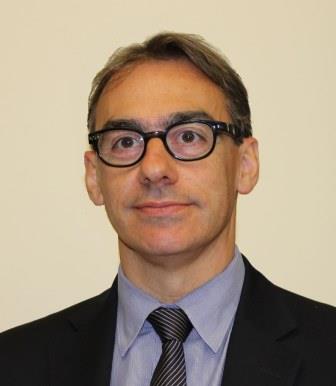
Marco Ventura is a professor of canon law and law and religion at the Faculty of Canon Law of Katholieke Universiteit Leuven. After a PhD at the University of Strasbourg he has visited the universities of London (UCL), Oxford, Strasbourg, Brussels (ULB), Cape Town and the Indian Law Institute in Delhi. He is a member of the European Consortium for Church and State Research and of the Centre Droit, Religion, Entreprise et Société at the University of Strasbourg and CNRS.
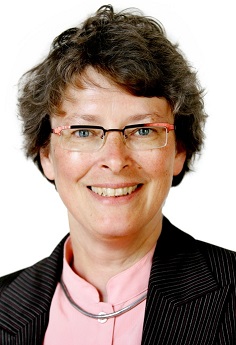
Sophie van Bijsterveld graduated in law at the University of Utrecht in 1983. She received a doctorate in Law at Tilburg University in 1988. Currently, she is professor of religion, state and society at the School of Humanities. She has published extensively in the fields of (international) human rights protection, religious liberty, constitutional law, and hybrid governance. Her books include: Overheid en godsdienst. Herijking van een onderlinge relatie [State and Religion: Regauging a Mutual Relationship], Second Edition, 2009; The Empty Throne: Democracy and the Rule of Law in Transition (2002) on the future of democracy and the rule of law, and Godsdienstvrijheid in Europees perspectief [Religious liberty in European Perspective] (1998). Former professional activities include membership of the Council for Public Administration [Raad voor het openbaar bestuur] a statutory advisory body of the government and parliament. At the international level, Sophie was member of the Advisory Council of Freedom of Religion or Belief of ODIHR/OSCE. As of June 2007, Sophie is member of the Dutch Upper House of Parliament [Eerste Kamer der Staten-Generaal] for the Christian Democratic Party (CDA). She is also a Member of the Board of the Scientific Institute of the Christian Democratic Party in the Netherlands.
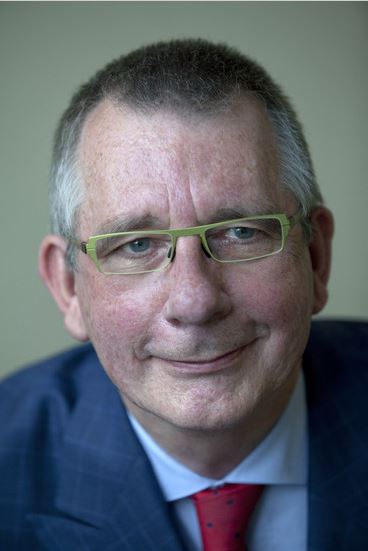
Since July 2009, Cornelis (Dennis) de Jonghas been a Member of the European Parliament, representing the Dutch Socialist Party. Before he entered the EP, he was Special Advisor on Human Rights and Good Governance in the Netherlands Ministry of Foreign Affairs. In that capacity, he dealt not only with the human rights aspects of the freedom of religion or belief, but also with the position of religion in the Dutch Foreign and Development policies. He became the secretary of the Dutch Knowledge Centre on Religion and Development, and joined an academic network called Focus on Freedom of Religion or Belief. He is also a member of the OSCE/ODIHR Panel of Experts on Freedom of Religion or Belief. In 2000, he received his doctorate in international law at the University of Maastricht, the Netherlands, on the basis of his thesis: "The Freedom of Thought, Conscience and Religion or Belief in the United Nations (1946-1992)". Dennis is member of the Civil Liberties, Justice and Home Affairs Committee, and is also active in the group of like-minded MEPs for the protection of the freedom of religion or belief. It is his firm conviction that the full scope of this freedom embraces the rights of theistic, non-theistic and atheistic beliefs. Against this background, any type of discrimination against religious and non-religious beliefs should be eradicated, both within the EU and through the EU’s external policies also in other parts of the world.
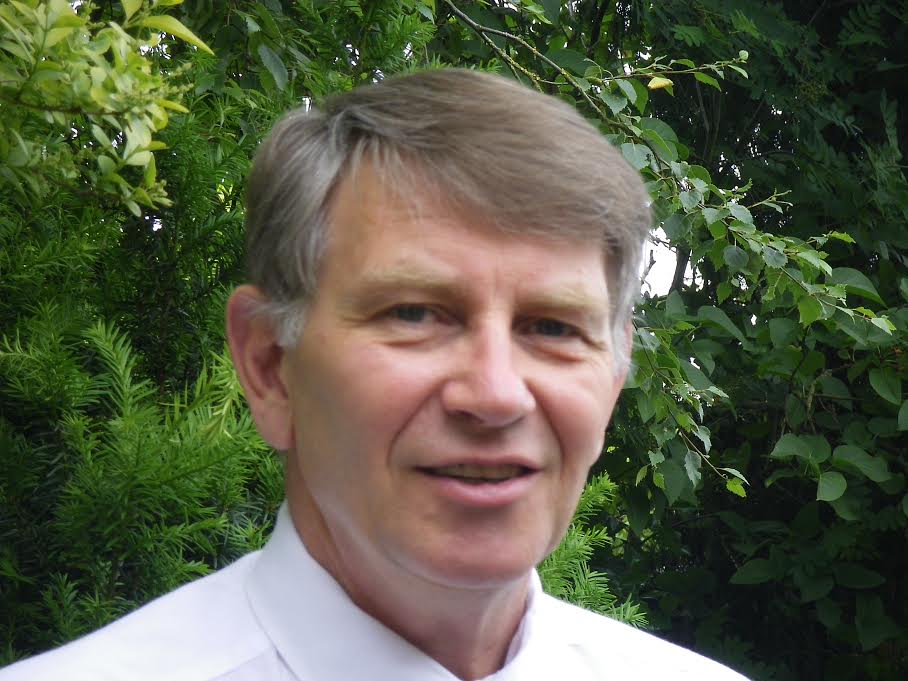
As a Chair of GNF (Gerard Noodt Foundation for Freedom of Religion of Belief), the Netherlands, Hans Noot has been active in the arena of Religious Freedom and is known throughout many countries for his initiatives and participation in a wide variety of international forums, symposia and platforms. He holds a Master’s Degree in Organizational Behavior from Brigham Young University and is a PhD Candidate in Organizational Anthropology at the University of Tilburg. He is championed in involving Religious Organizations fight off the trend of secularization.
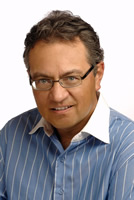
Rex Ahdar LLB (Hons), LLM (Canterbury), PhD (Otago) is a Professor in the Faculty of Law at the University of Otago, where he has taught since 1985. He has been a Fulbright Senior Research Scholar at Boalt Hall School of Law, UC Berkeley, and a Visiting Scholar at the Department of Private Law, Edinburgh University and at Emory University Center for Law and Religion. He is the editor of God and Government: The New Zealand Experience (Otago University Press, 2000) (with John Stenhouse), Law and Religion (Ashgate 2000) and Shari’a in the West (Oxford University Press 2010) (with Nicholas Aroney), and the author of Worlds Colliding: Conservative Christians and the Law (Ashgate 2001) and Religious Freedom in the Liberal State 2nd ed (Oxford University Press 2013) (with Ian Leigh). His research interests include religious freedom, church-state relations, and antitrust law.
John Kinahan is an editor with Forum 18, an Oslo-based religious freedom watchdog.
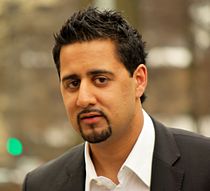
Abid Qayyum Raja is a Norwegian lawyer and politician for the Liberal Party. He was elected to the Parliament of Norway Akershus in 2013. He serves as second deputy chair of the Standing Committee on Transport and Communications and also is a member of the Standing Committee on Scrutiny and Constitutional Affairs. He was born in Oslo into a family of Pakistani descent. After graduating from Foss Upper Secondary School, he enrolled at University of Southampton, and graduated with a degree in Human Rights and Behavioural Sciences in Law. Raja was in 2003 a Norway Scholar at Wadham College. He holds also an undergraduate degree in Criminology and Cand.jur. degree from University of Oslo with Laud. He has worked as a criminal lawyer and a civil case litigator.
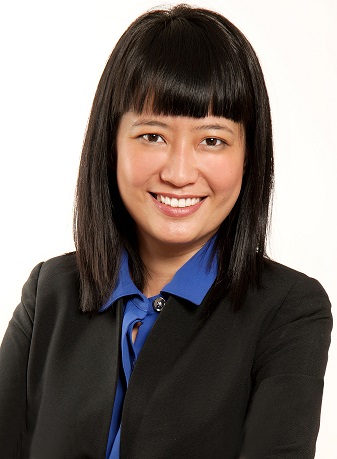
Jaclyn L. Neo is an Assistant Professor of Law at the National University of Singapore (NUS). A graduate of the NUS Law Faculty, Jaclyn joined the faculty in 2007 when she was awarded the NUS Overseas Graduate Scholarship to pursue her Masters of Laws from Yale Law School. She subsequently received another scholarship to pursue her Doctor of the Science of Law from Yale Law School. Before joining NUS, Jaclyn was a Legal Associate at Wong Partnership's Litigation and Dispute Resolution Department. Jaclyn teaches Constitutional and Administrative Law, Comparative State and Religion, and Law, Migration, and Citizenship. Her research is primarily in the areas of constitutional and human rights law, with specific focus on women, ethnic and religious minorities.
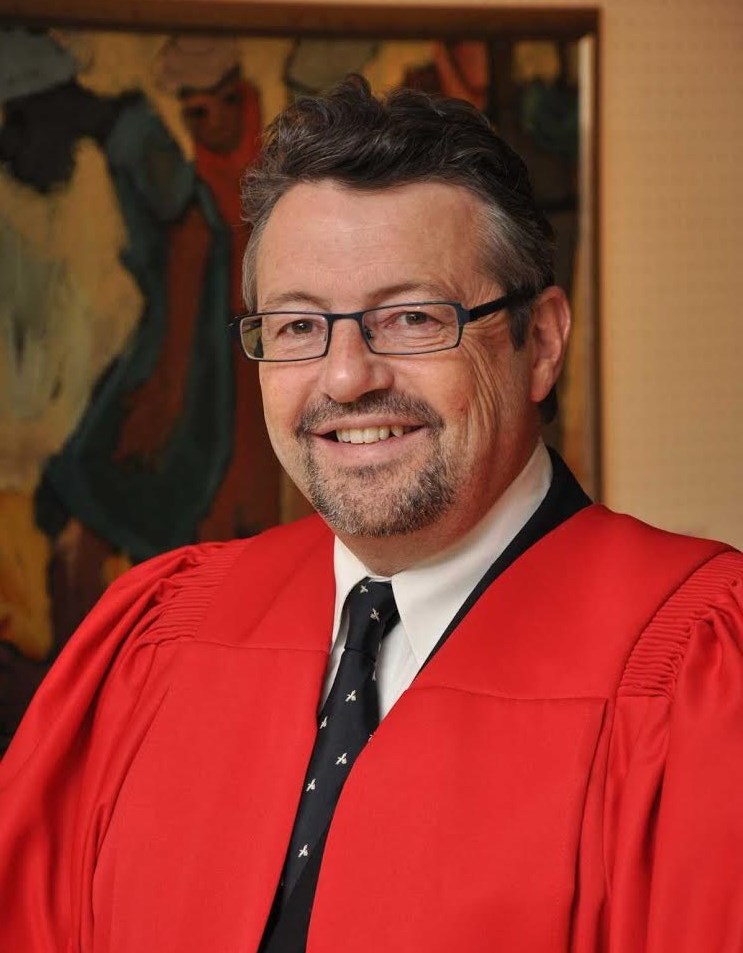
Iain T. Benson, BA (Hons.), MA (Cantab.), JD, PhD, was born in Edinburgh Scotland, raised in Canada, and lives in France. He was called to the bars of B.C. and Ontario. He is Professor Extraordinary, University of the Free State, Bloemfontein, South Africa (2009, ongoing); Visiting Professor (Comparative Constitutional Law) Faculty of Law, University of Western Ontario, Canada (2014); Research Fellow, South African Institute for Advanced Constitutional, Human Rights, Public and International Law (2008, ongoing); Senior Research Fellow, Chester Ronning Centre for the Study of Religion and Public Life, University of Alberta (2010, ongoing); Member of the Board and Executive Committee of the Global Centre for Pluralism, Ottawa, Canada (2010, ongoing); retained by the Federal Government of Canada for Policy Research Initiative on "Religion and Public Policy" (Jan 2008); one of the drafters of the South African Charter of Religious Rights and Freedoms (2010); Special Rapporteur on Law and Religion in Canada and South Africa to the Pontifical Academy of the Social Sciences, Vatican City (2012). He has published many academic articles and book chapters; his work has been cited by both the Supreme Court of Canada and the Constitutional Court of South Africa. He is the author of Living Together with Disagreement: Pluralism, the Secular and the Fair Treatment of Beliefs by Law (Connor Court Publishing, Australia in 2012). His PhD thesis "An Associational Framework for the Reconciliation of Competing Rights Claims Involving the Freedom of Religion" was published by Wits, 2013.
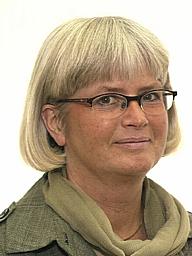
Annelie Enochson has been a member of the Swedish Riksdag since 2000. In the Riksdag, she has been part of the former Committee on Housing (2000–2002), the Committee on the Labour Market, and the Committee on European Union Affairs (2002–2006). She also served as a regular member of the OSCE delegation between 2002–2006 and is now a deputy member. She is also since 2012 a member of the Committe on Taxation.
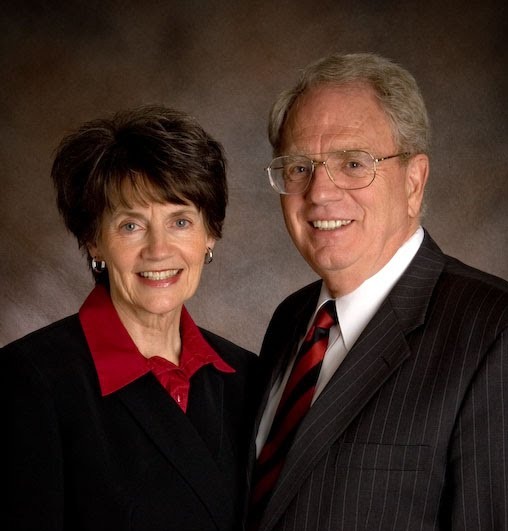
Warren and Lydia Hansen represent the International Center for Law and Religion Studies and the David M. Kennedy Center for International Studies at the European Union in Brussels and Strasbourg. They previously served as Government Relations Representatives for The Church of Jesus Christ of Latter-day Saints in Geneva, Switzerland, for the years 2009-2011. During that time they began an extensive worldwide monitoring of religious freedom news, organizing the data and preparing extensive summaries and reports targeted for various audiences. Before their service in Geneva, Warren and Lydia had lived in Washington, DC; West Lafayette, IN; New Brunswick, NJ; Salt Lake City, UT; Boise, ID; and Los Angeles, CA. Dr. Hansen holds bachelor's and master's degrees from Brigham Young University, and a PhD from Rutgers University. Mrs. Hansen received a bachelor's degree in Human Development & Family Relations and Elementary Education from BYU.
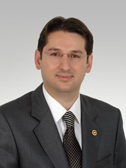
Assoc. Prof. Dr. Aykan Erdemir is a member of the Turkish Parliament, where he serves as European Union Commissioner for Compliance and a Member of the European Union Joint Parliamentary Committee of the Turkish Group. A social anthropologist, he holds a BA in International Relations from Bilkent University (Ankara, 1996), MA (1998) and PhD (2004) in Middle Eastern Studies and in Anthropology from Harvard. His dissertation title is "Incorporating Alevis: The Transformation of Governance and Faith-Based Collective Action in Turkey." He was a lecturer in the Department of Sociology of Middle East Technical University (METU) where he taught courses on social and political anthropology, and the anthropology of Europe and the Middle East. His academic research covers faith-based collective action of Turkish and European Alevi communities, work and remittance strategies of Turkish immigrants in Europe, and discrimination and hate crimes in Turkey. He participated in and directed many national and international collaborative projects funded by the Sixth Framework Programme, National Science Foundation (NSF), WennerGren Foundation for Anthropological Research, European Center for Minority Issues, European Initiative for Democracy and Human Rights, and the Scientific and Technological Research Council of Turkey. Erdemir was also the Deputy Dean at the Graduate School of Social Sciences at METU (2004–2011) and the Director of the German-Turkish Master’s Program in Social Sciences (2007–2011), a dual-diploma program of Humboldt-Universität and METU. He is widely published in both Turkish and English. Dr. Erdemir is a professional member of the American Anthropological Association, European Association of Social Anthropologists, Middle East Studies Association of North America, International Sociological Association, International Association for Southeast European Anthropology, European Society for Central Asian Studies, Anthropological Association of Turkey, and Sociological Association of Turkey.
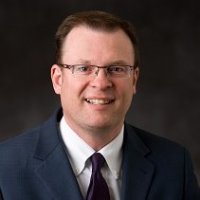
In his role as Europe Area Public Affairs Assistant Director for The Church of Jesus Christ of Latter-day Saints, Malcolm Adcock directs activity within the UK and in the pan-European environment including: Media Relations, Government Affairs, Interfaith Outreach, and Leadership Development & Training from his bases in London and in Solihull, West Midlands. Before assuming this role in 2009, Malcolm headed global media relations, acting as Government affairs liaison in the UK and in the Middle East, for the Institution of Occupational Safety and Health (IOSH), the world's largest professional health and safety organization, with membership in 85 countries. Previous to his time at IOSH Malcolm was for two years (2005-2007) Mayor of Daventry. Before that he was Director, Public Affairs and Media consultancy, Northamptonshire (7 years), BBC Consumer Issues Journalist and Producer (14 years), and National Press Officer, RAC Public Affairs (3 years). Malcolm was educated at the School of Law, University of Kent, where he focused on Law & Industrial Relations, International Law, Contract, Tort, Criminal Law, and Politics.
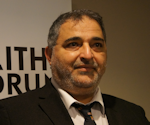
Sayed Yousif Al-Khoei OBE is the Director of the Centre of Academic Shia Studies, the Director of Public Affairs at the Al-Khoei Foundation, and the Founding member of the Interfaith Council for the protection of places of worship and Sacred Sights. He is engaged in a number of strategic programmes including interfaith, Intra faith, community cohesion, capacity building and academic projects locally, nationally and at the UN where the Al-Khoei Foundation has a General Consultative Status at the Social and Economic Council. Sayed Yousif is a founding member of the Mosque and Imams National Advisory Board (MINAB) which was set up in 2006. MINAB is a national body with a membership of 600 mosques. It aims to raise standards in promoting good governance for mosques; better youth and women participation; better interfaith relations and mosques as better community hubs. He gained his OBE in 2008 for his role for promoting community relations.
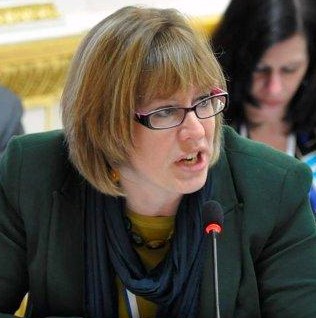
Sue Breeze is a career diplomat, who began her career by learning Mandarin and with a posting to China. Her most recent posting was as the UK’s Deputy Ambassador to Venezuela. Her career has included time as Assistant Private Secretary to four Ministers for Europe and work on a wide range of bilateral and multilateral policy desks in the Foreign & Commonwealth Office. She currently heads up a team responsible for the UK’s work to promote and protect freedom of religion or belief as well as a broad spread of other equalities issues such as women’s rights and child rights. She works closely with the UK Envoy on Post-Holocaust Issues to ensure that the UK plays a leading role in Holocaust education, research and remembrance internationally, and works actively to tackle anti-Semitism.
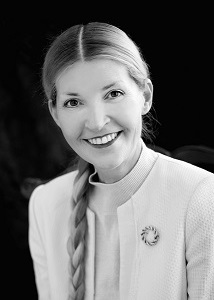
Dr. Isabella D. Bunn is affiliated with Regent’s Park College, University of Oxford, where she specializes in global ethics, human rights, and international economic law. She is the Associate Director of the Oxford Centre for Christianity and Culture and a member of the Oxford Network of Peace Studies. Dr. Bunn is also the Robert L. Long Professor of Ethics at the Florida Institute of Technology, Bisk College of Business, where she teaches globalization and corporate social responsibility. Dr. Bunn has worked as a legal advisor in the public and private sectors. She holds a B.S. in Foreign Service from Georgetown University, M.A. in International Relations and J.D. cum laude from the University of San Diego, a Postgraduate Diploma and M.Phil in Theology from the University of Oxford, and a Ph.D in human rights law from the University of Bristol. She is engaged in a number of projects related to justice, human rights, and the rule of law in the global economy.
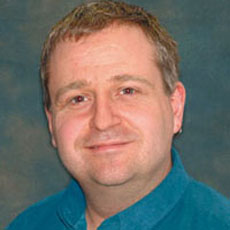
Professor Peter Edge is a member of the Faculty of Humanities and Social Sciences, Oxford Brookes University. His principal interests are the interaction of law and religion in contemporary plural jurisdictions, with a particular emphasis on the law of the United Kingdom, the European Union, and the United States. The issues span a wide range of legal topics, from employment law to the sentencing of religious offenders; from the establishment of the Church of England to food and grooming requirements. One of Professor Edge’s projects, funded by the Economic and Social Research Council, investigated religious representation in the Manx legislature, the Tynwald (the legislature of the Isle of Man). This contributed to the political debate on the future of the Lord Bishop of Sodor and Man, as well as to the academic study of religious representation globally.
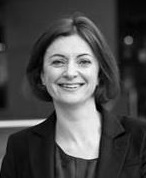
Elizabeth became Baroness Berridge of the Vale of Catmose in the County of Rutland on 20th January 2011. Within this role Elizabeth works on projects relating to policing, human rights and foreign affairs as well as being patron of the Rutland Foodbank. Elizabeth founded and chairs the All-Party Parliamentary Group on International Freedom of Religion or Belief which spawned her interest in the Central African Republic. She is also a member of the Joint Committee on Human Rights. Born and educated in the small county of Rutland, Elizabeth attended Vale of Catmose College comprehensive school (from which she took her title) and Rutland College. Elizabeth then studied law at Emmanuel College, Cambridge, and undertook barrister’s training at the Inns of Court School of Law in London. She has lived in Trinidad and Tobago and Ghana, and remains keenly interested in both countries and their regions. Elizabeth’s professional career as a barrister was at Kings Chambers Manchester, where she specialised in personal injury and licensing law. During this time she was also involved in a number of other activities including charitable work and local politics, and was an active member of her local church, Holy Trinity Platt. Elizabeth was a trustee of the Conservative Christian Fellowship (CCF) before becoming CCF Executive Director in 2005, which necessitated her move from Manchester to London. As Director, Elizabeth saw CCF membership widening to become truly cross denominational, and built an extensive relationship base with British African Caribbean and British African church leaders. Elizabeth is a trustee of the thinktank British Future which focuses on identity, integration, migration and opportunity. She is a commissioner on the Conservative Party Human Rights Commission and a member of the advisory council of the Foundation for Relief and Reconciliation in the Middle East, which works to support the inspiring work of Canon Andrew White, vicar of Baghdad.
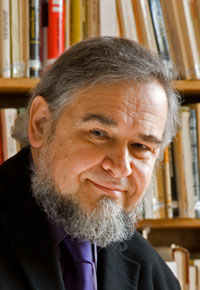
Professor Paul Stuart Fiddes has been a member of the Oxford Theology Faculty Board since 1989, serving as Chairman 1996-98. He was appointed Principal of Regent's Park in 1989 and Professor of Systematic Theology in the University of Oxford in 2002. In 2007 he resigned the Principalship of Regent's Park and was appointed Principal Emeritus, Professorial Research Fellow, and Director of Research. In 2004 Fiddes was elected an Honorary Fellow of St Peter's, on which occasion he was described as being "recognised internationally as one of the leading scholars in the fields of theology and literature." Later in that year, he was awarded the degree of Doctor of Divinity, the highest that the University confers. In 2002 he was chosen to preach the University Sermon on the Grace of Humility, and in 2005 he was appointed to deliver the Oxford Bampton Lectures, choosing as his topic "Seeing the world and knowing God: ancient wisdom and modern doctrine". In 2004 he became an Honorary Doctor of Divinity of the University of Bucharest. He is also a Trustee Fellow of Georgetown College. Author and editor of numerous books, book chapters, and articles, Professor Fiddes has been described as one of the leading contemporary Baptist theologians, one of the leading scholars of theology and literature writing today, and one of Christianity's most distinguished scholars. His book The Creative Suffering of God is considered to be one of the major contributions to theology in the last decades of the 20th century.
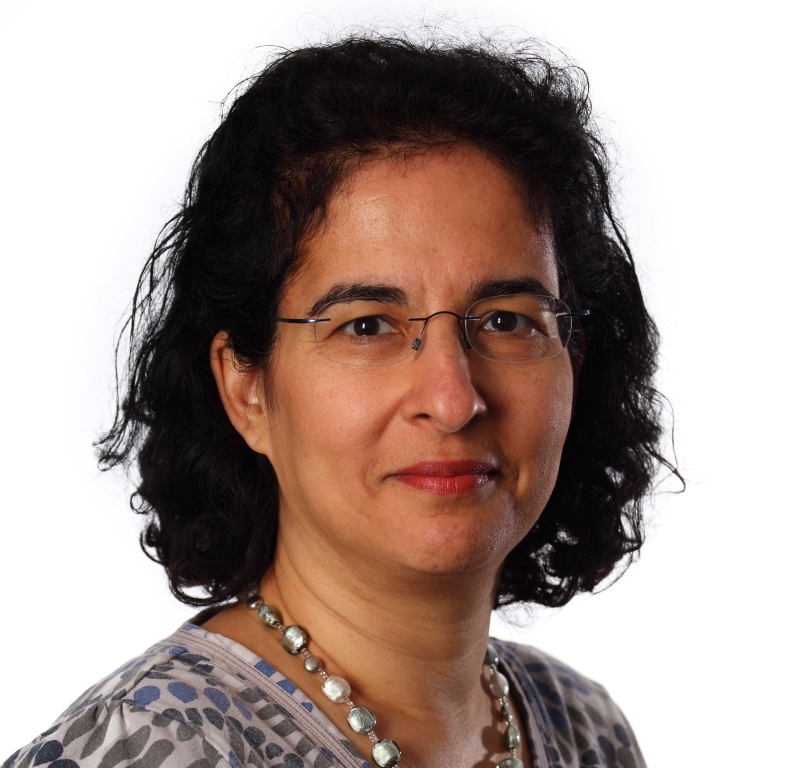
Dr. Nazila Ghanea is Associate Professor in International Human Rights Law at the University of Oxford and a Fellow of Kellogg College (BA Keele, MA Leeds, PhD Keele, MA Oxon). She serves as a member of the OSCE Panel of Experts on Freedom of Religion or Belief. was the founding editor of the international journal of Religion and Human Rights and now serves on its Editorial Board as well as the Advisory Board of the Oxford Journal of Law and Religion. She has been a visiting academic at a number of institutions including Columbia and NYU, and previously taught at the University of London and Keele University, UK and in China. Nazila’s research spans freedom of religion or belief, the protection of identities in international human rights, and human rights in the Middle East. Her publications include nine books, five UN publications as well as a number of journal articles and reports. Nazila has acted as a human rights consultant/expert for a number of governments, the UN, UNESCO, OSCE, Commonwealth, Council of Europe and the EU. She has facilitated international human rights law training for a range of professional bodies around the world, lectured widely and carried out first hand human rights field research in a number of countries including Malaysia, Qatar, the United Arab Emirates and the United Kingdom. She is a regular contributor to the media on human rights matters.
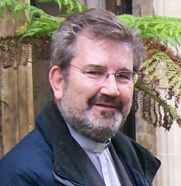
Robin Gibbons is Fellow, Dean of Studies of Foundation House/Oxford, and Alexander Schmemann Professor of Eastern Christianity. He was professed as a Benedictine Monk at St Michael's Abbey Farnborough in England in 1973 and ordained priest in 1979. He is also an iconographer and one of his major works can be found in the Monastery of Christ in The Desert (Abiquiu, New Mexico). He later transferred to the Eastern Rite (Greek Catholic). Canon Gibbons studied Theology at the University of Kent, doing his Master’s in Theology and his Ph.D. in Liturgy at Heythrop College, University of London, later taking a Master of Studies (M.St.) degree in Reformation history at Cambridge (Trinity Hall). He is also a member of the Academy of Teaching and Learning, a Fellow of the College of Preceptors and a Fellow of the College of Preachers. He acted as Monastic formator in two monastic communities in the United States. Canon Gibbons has written many articles and been a contributor to several books. In May 2012, he was installed as the International Ecumenical Canon of All Saints’ Anglican Cathedral in Edmonton, Canada. Canon Gibbons is a Visiting Research Fellow attached to the Centre for Eastern Christianity in Heythrop College London. A member of the Faculty of Theology at the University of Oxford, he is also Pastoral Director of the Oxford Theology Summer School and the Director of the Department for Continuing Education’s flagship OUSSA Summer School. He is also the Department’s Director of Studies for Theology and Religion and a Departmental Lecturer. Canon Gibbons is one of the members of a new multi-disciplinary Centre, which includes Religion in Public Life, based at Wolfson College, Oxford. He is now a member of Regents Park College in the University of Oxford. He is Assistant Pastor for the Greek Catholic Melkite Church in London and Great Britain but also helps in looking after Eastern Catholic members of Oxford University as well as being one of the Ecumenical Partners in the Benefice of Steeple Aston, North Aston and Tackley in the Anglican Diocese of Oxford.
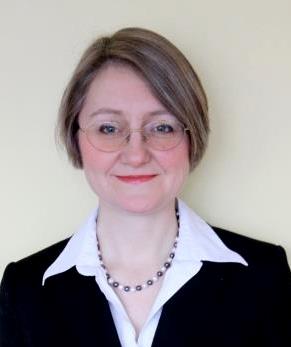
Jessica Giles is a Law Lecturer for the Open University Law School and teaches English legal systems and EU law. She studied law at Durham and Bristol Universities and theology with the Open Theological College. She qualified as a solicitor in 1991 with Osborne Clarke in Bristol. She has is currently a student member of Inner Temple. She has tutored and worked as a Research Assistant at Bristol University and worked writing reports of judgments for the Official Law Reports in the Chancery and Queen’s Bench Divisions of the High Court of Justice for England and Wales and the Court of Justice of the European Union. Jessica is lead case note editor for the Oxford Journal of Law and Religion, and a member of the Law and Religion Scholars Network and the International Consortium for Law and Religion Studies.
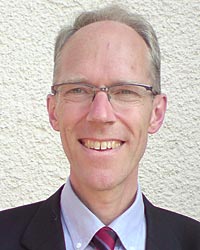
Dr. Peter Heslam, MA BA DPhil FRSA, is a Senior Member of Trinity College, University of Cambridge, a Visiting Fellow at Regent's Park College, University of Oxford, a Fellow of the Royal Society of Arts, a member of the International Leadership Association, and an adviser to Beyond Profit, Entrepreneurial Leaders, and to the journals Faith in Business Quarterly and the Journal of Markets and Morality. He is also a Visiting Professor at Yunnan University in China and has served as a judge in the international business competitions on enterprise solutions to poverty organized by Pioneers of Prosperity. At Cambridge he is Director of Transforming Business, a multi-disciplinary research and development project on enterprise solutions to poverty at Cambridge University. He works particularly closely with faculty at the University's divinity and business schools and with leaders in international business. He is also the chief co-ordinator of the international network of business pracitioners, ethicists, economists, consultants, educators and opinion formers that surrounds the project. Peter's academic background includes social science, history, ethics and theology and he holds degrees from Oxford and Cambridge. He has published widely and is a prolific writer, speaker, researcher and commentator on the role of business in economic and social development. His publications include Globalization: Unravelling the New Capitalism, Globalization and the Good, and Transforming Capitalism: Entrepreneurship and the Renewal of Thrift. Peter has lectured to university and business audiences around the world and has been the Director of the Capitalism Project at the London Institute for Contemporary Christianity, the Convenor of JustShare (a consortium of twenty development agencies), and an Adviser to Lambeth Palace on the issue of globalization.
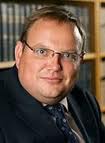
Mark Hill QC is a barrister specializing in ecclesiastical law and religious liberty. He is Honorary Professor of Law at Cardiff University, Extraordinary Professor at the University of Pretoria and a former President of the European Consortium for Church and State Research. His publications include Religion and Discrimination Law in the European Union (2012), Ecclesiastical Law (2007), Religious Liberty and Human Rights (2002), and English Canon Law (1998). He is Consultant Editor of the Ecclesiastical Law Journal and a member of the Editorial Board of the Oxford Journal of Law and Religion. He is a part-time Judge in the civil courts in England sitting in criminal, civil and family cases. He is editing a major work, Magna Carta, Religion and the Rule of Law to be published by Cambridge University Press in 2015 to mark its 800th anniversary.
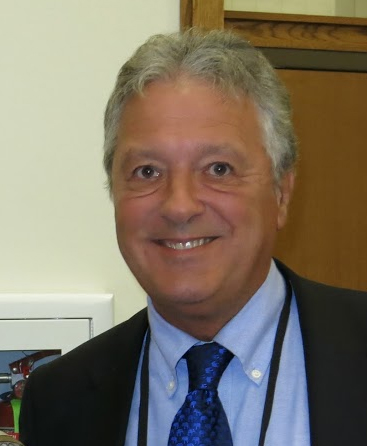
Dr. Don Horrocks has been Head of Public Affairs for the Evangelical Alliance since 2001. He also oversees the Evangelical Alliance’s Theology and Public Policy Advisory Commission and is a Director of the Coalition for Marriage. For 25 years Don held senior positions in commerce and management consultancy. He subsequently studied for a Doctorate in Systematic and Historical Theology and has published a number of books and reports. Don is a Baptist Minister and a Research Associate at the London School of Theology.
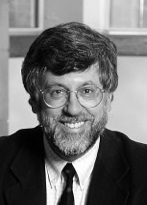
Mark Weston Janis is William F. Starr Professor of Law at the University of Connecticut and a Visiting Fellow & Formerly Reader in Law at the University of Oxford. Born in Chicago and raised in Illinois and Michigan, he is a graduate of Princeton University (AB), the University of Oxford (BA, MA), and the Harvard Law School (JD). He served as a US naval officer and was an associate at the law firm of Sullivan & Cromwell in New York & Paris. Besides his permanent academic appointments at UConn and Oxford, he has been a visiting professor at Cornell & UCLA in the USA, Paris I & Aix-en-Provence in France, Heidelberg & Muenster in Germany, Leiden & Tilburg in the Netherlands, Riga in Latvia, and the University of International Business and Economics Beijing in China. He has published more than sixty articles and twenty books, including a standard text book on International Law (Aspen 6th ed 2012), a popular case book on International Law (West 5th ed 2014), one of the first case books on European Human Rights Law (Oxford 3d ed 2008), and an intellectual history of the United States and the Law of Nations (Oxford 2010). He lectures and writes on Public International Law, International Human Rights Law, and U.S. Constitutional Law.
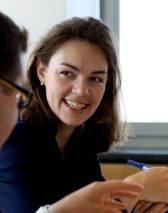
Charlotte Keenan has been with the Tony Blair Foundation, where she serves as Chief Executive, since 2008. Before joining the Foundation, Charlotte was in Corporate Finance, firstly with Jefferies and Company in the United States and then with JP Morgan Cazenove in London. She has extensive experience in international capital markets and M&A advisory work. Her sector focus was in industrials, mining and energy. Charlotte holds a BA Hons Degree in Theology from Oxford University, where she was also President of the Oxford Union. After Oxford, she was awarded a Frank Knox Memorial Fellowship to study International Relations and Public Policy at Harvard, where she spent a year at the Kennedy School of Government and Graduate School of Arts and Sciences. She also holds a Master of International Affairs Degree from Columbia University.
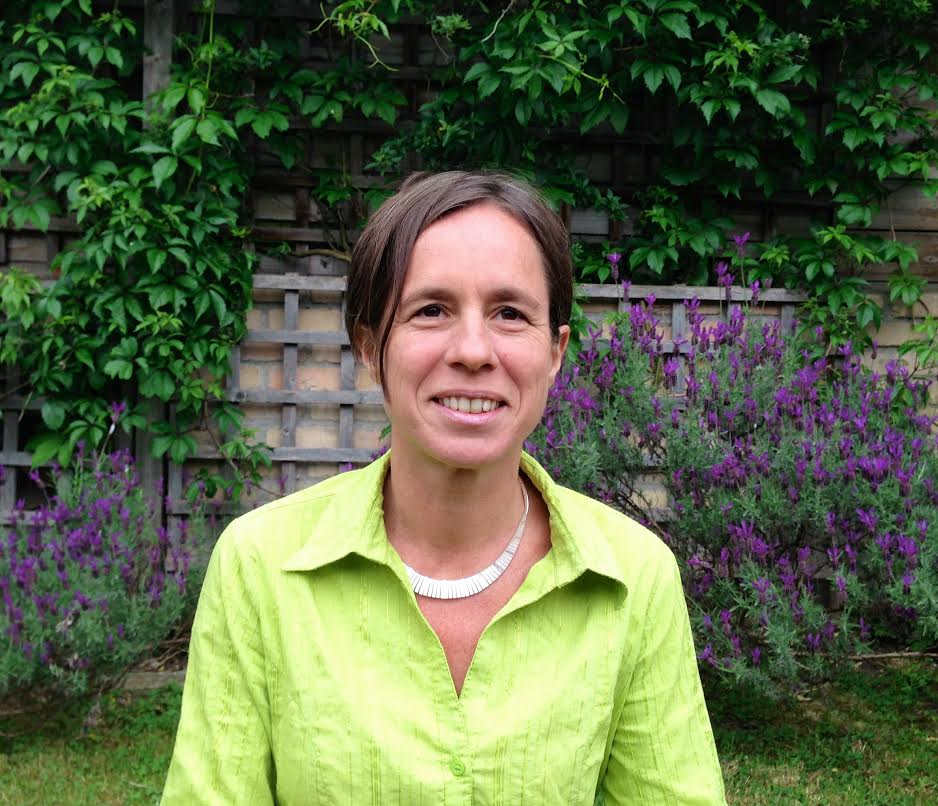
Cécile Laborde is a Professor of Political Theory at University College London. She has published extensively in the areas of republicanism and toleration, theories of law and the state, and global justice. Her last book is Critical Republicanism. The Hijab Controversy in Political Philosophy (Oxford University Press 2008). She is the Director of UCL’s Religion and Political Theory Centre. She is currently writing a book for Harvard University Press, entitled Freedom of Religion without Religion.
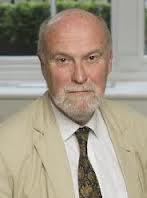
Ian Linden is Director of Policy at the Tony Blair Faith Foundation, formerly director of the Social Action Programme, Faiths Act, and an associate professor in the Study of Religion at the School of Oriental and African Studies (SOAS) in the University of London. He has published a number of books on religion in Africa and, recently, two major studies on faith and globalisation, A New Map of the World and Global Catholicism. He was for fifteen years director of the Catholic Institute for International Relations and was awarded the CMG for work for human rights in 2000. He is a member of the Christian-Muslim Forum of the UK, worked in interfaith dialogue with Shi’a leaders, in Iran and has acted as a DfID (UK government Department for International Development) consultant on matters of Faith and Development.
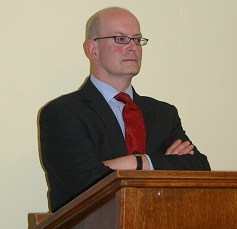
Anthony O’Mahony is a Reader in Theology and History of Christianity at Heythrop College, University of London. He was Founding Director of the Centre for Christianity and Interreligious Dialogue and now serves as the Director of the Centre for Eastern Christianity. His publications include Christianity in the Middle East: Studies in Modern History, Politics and Theology (2008); Christian Responses to Islam: Muslim-Christian Relations in the Modern World (2008); Christianity in the Modern Middle East (2010); Christianity and Jerusalem: Studies in Theology and Politics in the Modern Holy Land (2010); The Catholic Church in the Contemporary Middle East: Studies for The Synod of the Middle East (2010); Eastern Christianity in the Modern Middle East (2010).
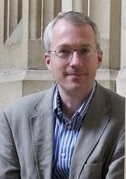
Julian Rivers was appointed to the University of Bristol in 1993, becoming Professor of Jurisprudence in 2007. He has taught a range of subjects in European and domestic constitutional and administrative law, human rights law and jurisprudence. His research interests lie mainly in the area of legal and constitutional theory, with particular interests in legal reasoning and the relationship between law and religion, in which areas he has published widely. He is best known for his translation (from German) of Robert Alexy’s Theory of Constitutional Rights, which appeared with Oxford University Press in 2002, along with several articles and essays extending and applying the Theory in the British context. In 2010 he published The Law of Organized Religions: between Establishment and Secularism, also with Oxford University Press, which was subsequently shortlisted for the 2011 triennial Inner Temple book prize. He is a member of the Editorial Advisory Board of the Ecclesiastical Law Journal, and an editor-in-chief of the Oxford Journal of Law and Religion.
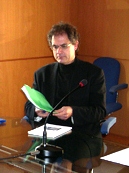
Yuri Stoyanov obtained his PhD in Combined Historical/Religious Studies from the University of London (The Warburg Institute). He is based at the Department of the Near and Middle East, School of Oriental and African Studies, University of London and is currently a Senior Fellow at the Albright Institute of Archaeological Research, Jerusalem and a CBRL Senior Visiting Fellow at the Kenyon Institute, Jerusalem His past assignments include Oxford and Wingate fellowships, British Academy awards, etc.; he is on the editorial board of several international academic journals and was Director of the Kenyon Institute (formerly the British School of Archaeology) in Jerusalem). He has lectured and published widely on various facets of the interaction between Zoroastrianism, Judaism, Christianity and Islam and their significance for certain far-reaching contemporary religio-political attitudes and developments, including the ongoing transmutations of the Abrahamic faiths' idelogogies of warfare. His publications include English-language books such as The Hidden Tradition in Europe (Penguin, London, 1994), The Other God (Yale UP, London & New York, 2000), Defenders and Enemies of the True Cross (Austrian Academy of Sciences Press, Vienna, 2011) as well as assistant editor of Christian Dualist Heresies in the Byzantine World c.650-c.1450 (Manchester UP, Manchester & New York, 1998). Since 2000 he has worked on a number of research projects (supported by British and Italian academic institutions and involving wide-ranging field work) focused on the status of religious sites and cultural/archaeological reserve areas as well as the history and current situation of religious sectarian groups and minorities in the Eastern Mediterranean, the Middle East and Central Asia.
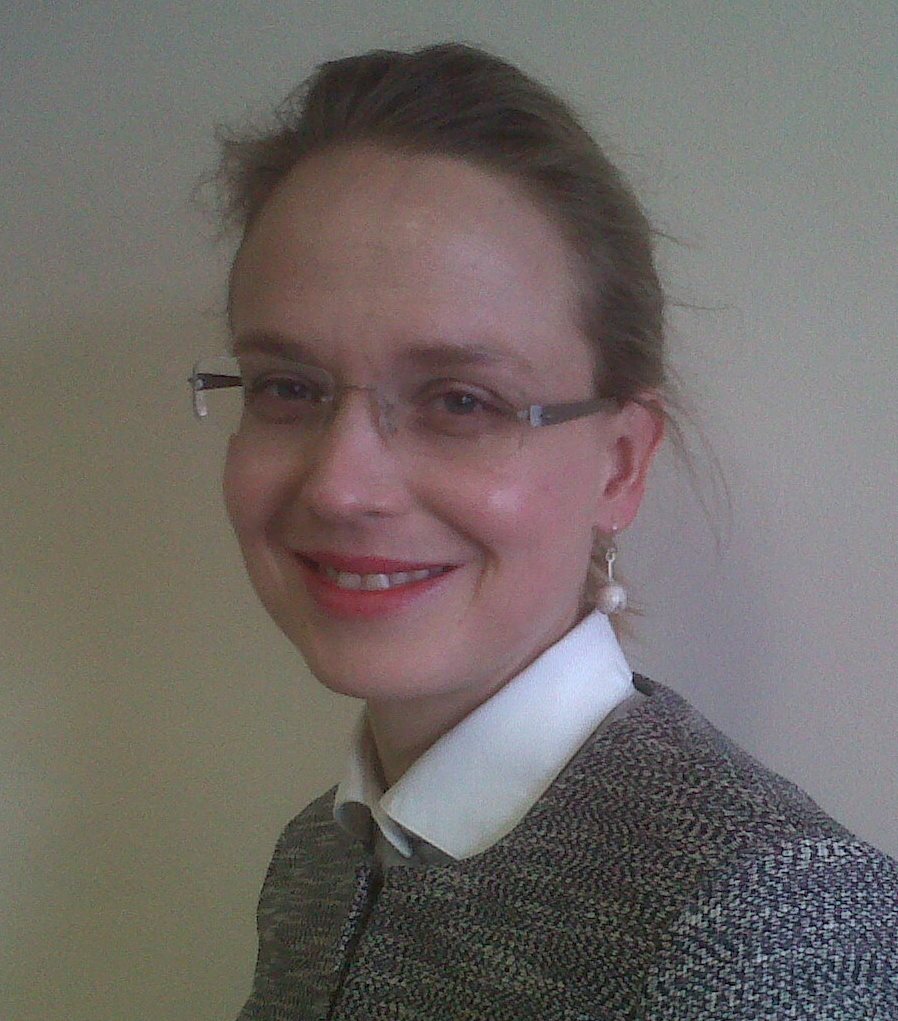
Pamela Strigo works as a Political Officer at the Canadian High Commission in London. Pamela is responsible for the Environment, EU and Human Rights files in the High Commission’s Political Section. Pamela joined the Canadian High Commission in 2009 following four years as a foreign and defence advisor to the EU Select Committee at the House of Lords, and a year working for the European Institutions in Brussels. Pamela holds a Master of Philosophy degree in International Relations from Cambridge University and a First Class Bachelor of Science in International Relations and History from the London School of Economics.
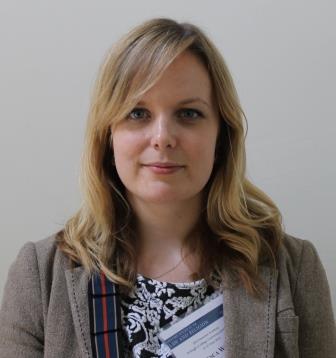
Francesca Washtell is a Researcher at the Centre for Academic Shi’a Studies (CASS) and Project Lead at the Al-Khoei Foundation. Her main interests are how religious actors can play a role in conflict resolution, women’s rights – in particular campaigning against Female Genital Mutilation – and is currently leading a project on the international protection of sacred sites in times of conflict which includes the cataloguing of incidences of destruction to sacred sites. She graduated from the London School of Economics and Political Science with a degree in International History in 2012 and has previously worked in the fields of international development and security.
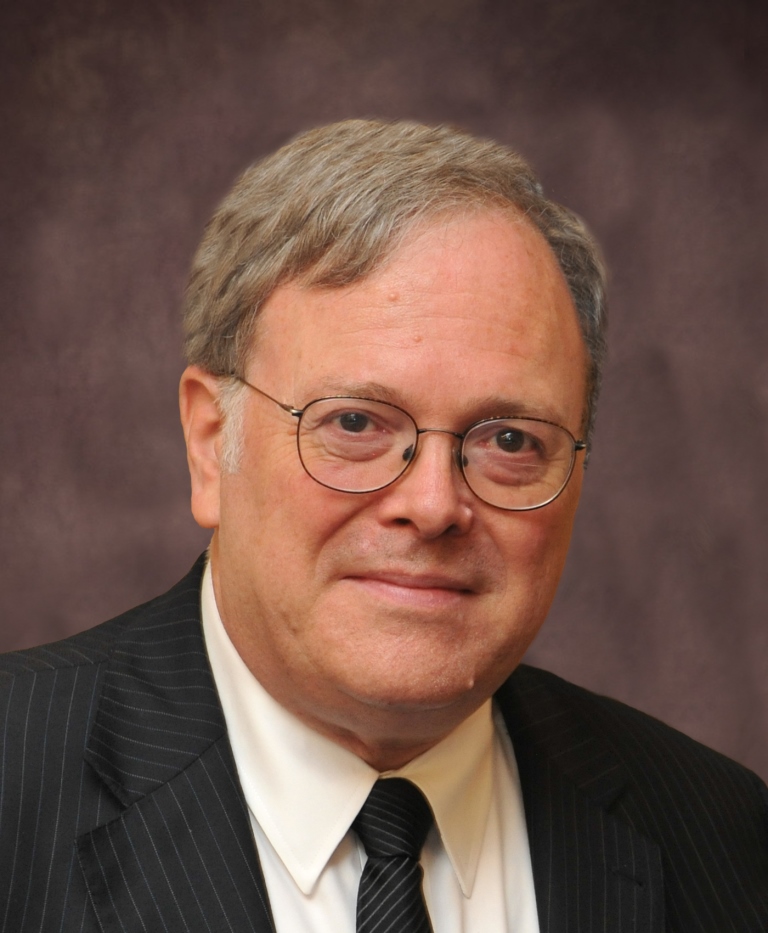
Professor Cole Durham has been Director of Brigham Young University Law School's International Center for Law and Religion Studies (ICLRS) since its official launch on January 1, 2000. He was named President of the International Consortium for Law and Religion Studies (ICLARS, Milan) on September 2011, succeeding Professor Silvio Ferrari. A graduate of Harvard College and Harvard Law School, where he was a Note Editor of the Harvard Law Review and Managing Editor of the Harvard International Law Journal, Professor Durham has been heavily involved in comparative law scholarship, with a special emphasis on comparative constitutional law. From 1989 to 1994, he served as the Secretary of the American Society of Comparative Law, and he is also an Associate Member of the International Academy of Comparative Law in Paris, where he was awarded the honorary designation of University Professor in 1999. Since 1994, he has also been a Recurring Visiting Professor of Law at Central European University in Budapest, where he teaches comparative constitutional law to students from throughout Eastern Europe, and increasingly from Asia and Africa as well. He has also been a guest professor in Gutenberg University in Mainz, Germany and at the University of Vienna. In January, 2009, he was awarded the International First Freedom Award by the First Freedom Center in Richmond, Virginia, and was awarded an honorary doctorate by Ovidius University in Constanţa, Romania in June, 2013. Professor Durham served from 1997-2013 as a member of the Advisory Council on Freedom of Religion or Belief of the OSCE’s Office of Democratic Institutions and Human Rights. He has provided technical assistance on constitutions and laws dealing with freedom of religion or belief in approximately 50 countries worldwide. He has organized a series of conferences on comparative law issues at Brigham Young University and at other institutions in the United States over the past 20 years which have brought about 900 scholars and experts dealing with comparative constitutional law themes from over 100 countries to the United States. He is author and editor of numerous books and law review articles dealing with religious liberty and other comparative law themes. He has participated in hearings before the U.S. Congress and European parliamentary bodies on a variety of issues relevant to freedom of religion. He is an Editor-in-Chief of the Oxford Journal of Law and Religion.
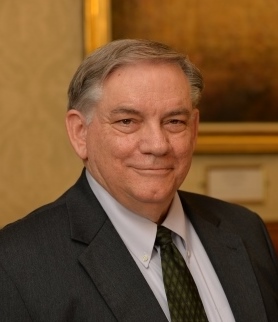
James Faulconer is a Richard L. Evans Professor of Philosophy at Brigham Young University. He is academic director of Brigham Young University Limited (London Centre), a senior fellow with the International Center for Law and Religion Studies, a fellow and the associate director of the Wheatley Institution, and the former dean of Undergraduate Education and chair of the Philosophy Department at BYU. Faulconer received his BA in English from BYU and a master's and doctor's degrees in philosophy from Pennsylvania State University. His area of interest in philosophy is contemporary European philosophy, particularly the work of Martin Heidegger and late 20th- and early 21st-century French thinkers. He was the founding editor of Epoché: A Journal for the History of Philosophy. Among his publications is The Life of Holiness: Notes and Reflections on Romans 1, 5-8. He is editor of Reconsidering Psychology: Perspectives from Contemporary Continental Philosophy (with R. N. Williams), Appropriating Heidegger (with Mark W. Wrathall); Transcendence in Religion and Philosophy, and Common Ground — Different Opinions: Latter-day Saints and Contemporary Issues (with Justin White) (in press). He writes the blog "Speaking Silence" for Patheos: Hosting the Conversation on Faith.
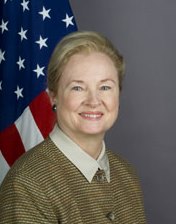
Mary Ann Glendon is the Learned Hand Professor of Law at Harvard University and President of the Pontifical Academy of Social Sciences. She is a former U.S. Ambassador to the Holy See, and currently serves as Vice-Chair of the U.S. Commission on International Religious Freedom. She writes and teaches in the fields of human rights, comparative law, constitutional law, and political theory. Glendon is a member of the American Academy of Arts and Sciences, the International Academy of Comparative Law, and a past president of the UNESCO-sponsored International Association of Legal Science. She served two terms as a member of the U.S. President's Council on Bioethics (2001-2004), and has represented the Holy See at various conferences including the 1995 U.N. Women's conference in Beijing where she headed the Vatican delegation. Glendon has contributed to legal and social thought in several widely translated works, bringing a comparative approach to a variety of subjects. Her books include Rights Talk (1991), a critique of the impoverishment of political discourse; A Nation Under Lawyers (1996), a portrait of turbulence in the American legal profession, analyzing the implications of changes in legal culture for a democratic polity that entrusts crucial roles to legally trained men and women; A World Made New: Eleanor Roosevelt and the Universal Declaration of Human Rights (2001), a history of the framing of the UDHR; and The Forum and the Tower (2011), a series of biographical essays exploring the relation between political philosophy and politics-in-action.
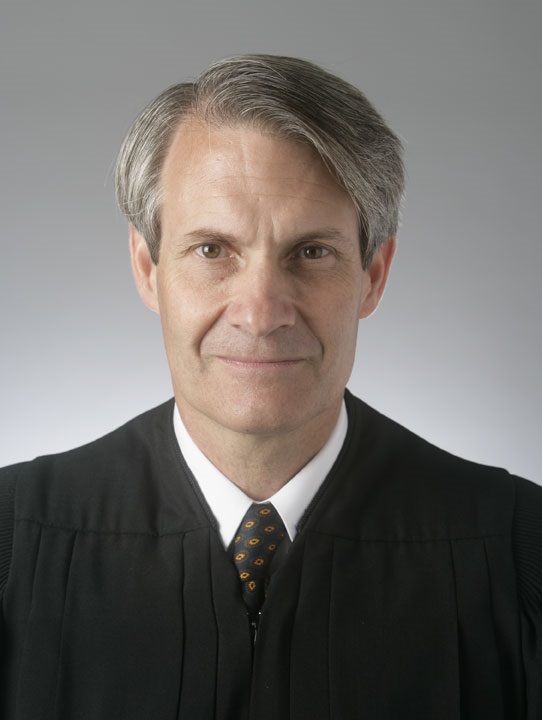
Thomas B. Griffith was appointed to the United States Court of Appeals for the D.C. Circuit in 2005. At the time of his appointment, Judge Griffith was the General Counsel of Brigham Young University, where he led a coalition of religious colleges and universities working to preserve their unique role in American higher education. Earlier in his career Judge Griffith was a partner in a Washington, DC law firm. He also served as Senate Legal Counsel, the chief legal officer of the United States Senate. In that capacity, he advised the Senate leadership and its committees on various matters, including the impeachment trial of President Clinton. Judge Griffith has long been active in the American Bar Association’s Central European and Eurasian Law Initiative (CEELI). He currently serves on the CEELI Council of the ABA’s Rule of Law Initiative and on the board of directors of the CEELI Institute in Prague. Since joining the Court, Judge Griffith has taught courses on Presidential Powers and Judicial Process at the Brigham Young University Law School and on the Role of an Article III judge at Stanford Law School. He is a graduate of Brigham Young University and the University of Virginia School of Law.
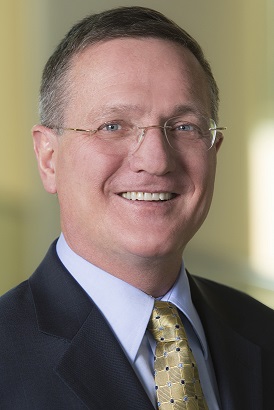
Brian Grim is president of the Religious Freedom & Business Foundation and a leading expert on international religious freedom and the socio-economic impact of restrictions on religious freedom, and an expert on international religious demography and religion-related violence. He is also an affiliated scholar at Boston University’s Institute on Culture, Religion & World Affairs. Prior to becoming the Foundation’s president in 2014, Brian directed the largest social science effort to collect and analyze global data on religion at the Pew Research Center, Washington DC’s premier "fact tank." He also worked for two decades as an educator, researcher and development coordinator in the former Soviet Union, China, Central Asia, the Middle East and Europe. Brian holds a doctorate in sociology from the Pennsylvania State University. He is an author of The Price of Freedom Denied considered the seminal work showing the dire consequences of denying religious freedom. He was written dozens of research articles and several academic books on global religion as well as being the author of the Weekly Number Blog. Brian has appeared as an expert on global religion on numerous media outlets, including CNN, BBC, Fox, CBS, C-SPAN, and regularly presents to high level audiences throughout the world including the White House, State Department, European Parliament and the UN Human Rights Council. Brian also is a TEDx speaker.
Brian is also a visiting research associate and the co-principal investigator for the international religious demography project at Boston University’s Institute on Culture, Religion and World Affairs (CURA), where he co-edits the World Religion Database. His findings on international religious demography and religious freedom have been covered by all the major news outlets, including the BBC, CNN, the Associated Press, and Reuters. He frequently presents to high-level governmental, nongovernmental and academic groups in the U.S. and abroad, including recently in Austria, Belgium, Brazil, Canada, China, Finland, Germany, Hong Kong, India, Italy, Morocco, Norway, Qatar, South Korea, Russia, Sweden, Switzerland, Turkey, Thailand, the United Arab Emirates, the United Kingdom, the Vatican and Vietnam.
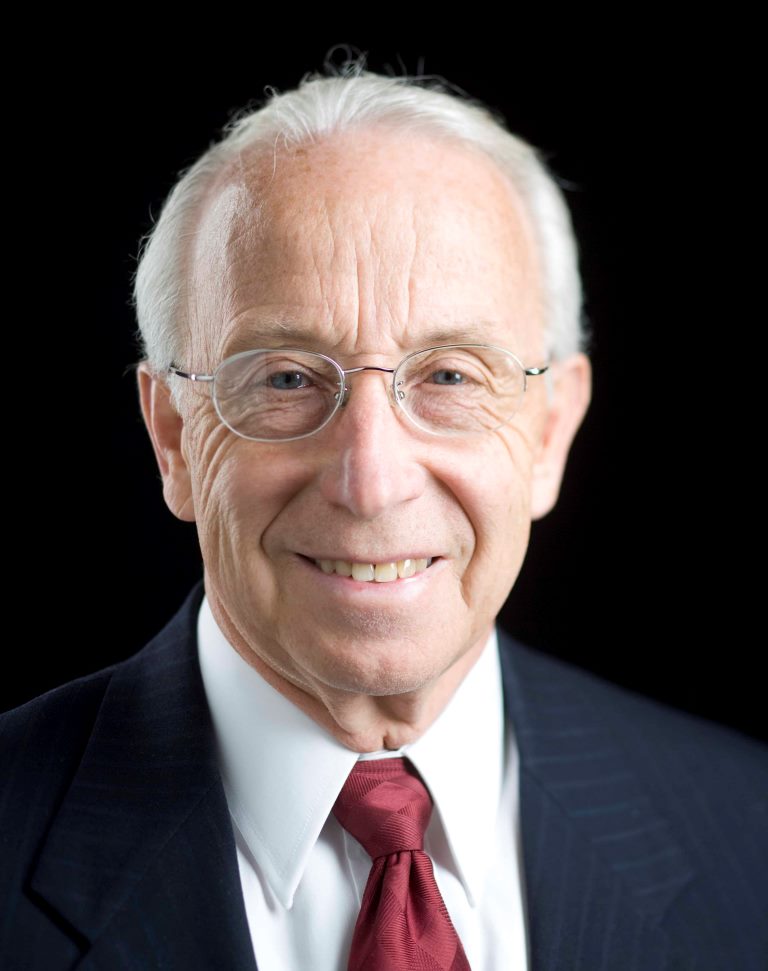
Professor H. Reese retired in 2012 after 38 years of service to the J. Rueben Clark Law School at Brigham Young University, where he was Howard W. Hunter Professor of Law. Prior to his retirement, Professor Hansen served as President of the Association of American Law Schools and as a member of the Utah Supreme Court Advisory Committee on Professionalism. He was Dean of the Law School from 1990 to 2004 and Associate Dean from 1976 to 1989. He has previously served on the Executive Committee of the Association of American Law Schools, as a member of the Utah Judicial Council Ad Hoc Committee on Probate Law and Procedure, Director of the Association of Religiously Affiliated Law Schools, Trustee of Utah Legal Services, Inc., and Trustee of the Law School Admission Council. He made significant contributions as a Commissioner on the Commission on Uniform State Laws and was an ex-officio Commissioner of the Utah Bar. Internationally, Professor Hansen was a member of the Foreign Law Initiative Law School Advisory Committee and of the Ad Hoc Advisory Committee for the Sister Law School Program of the Central and East European Law Initiative of the American Bar Association. Professor Hansen earned his Juris Doctorate from the University of Utah College of Law, where he was Research and Note Editor, Executive Board, Utah Law Review, and Order of the Coif. Before joining the BYU Law School faculty, Professor Hansen practiced law in Salt Lake City, Utah.
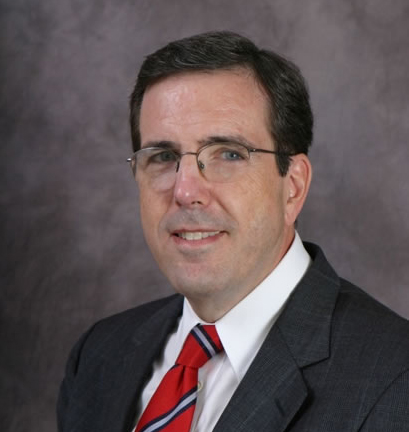
Michael L. Jensen, an International Fellow of the International Center for Law and Religion Studies is at present Area Legal Counsel, Office of General Counsel, The Church of Jesus Christ of Latter-day Saints, in Frankfurt, Germany. He served from 2007-2009 as Area Legal Counsel in Hong Kong, and from 2001-2005 in the same role in Moscow, in which capacities he supervised corporate, tax, employment, real estate and construction, litigation, government relations, religious liberty and related legal issues for the Church in 26 countries in Asia and in 16 countries in Eastern Europe, respectively. Intermittent with these assignments he has been a member Of Counsel of the International Law Section and Employment Law Section of the law firm Kirton & McConkie, with a practice focusing on international law for not-for-profit organizations and on advising employers on all aspects of the employment relationship. Previous to his assignments for the Church, Mr. Jensen was associate then partner in the firm Luce Forward, San Diego, California, a member of their Labor and Employment Law Practice Group, and Practice Group Chair, specializing in all aspects of employment law and litigation in state and federal courts, including individual and class discrimination and wage litigation, wrongful termination litigation, collective bargaining, and general employment counseling and training. He was before this an associate in the firm O'Melveny & Myers, Los Angeles, California, and Law Clerk to the Honorable Eugene A. Wright, United States Court of Appeals for the Ninth Circuit, Seattle, Washington. A graduate cum laude of Princeton University Woodrow Wilson School of Public and International Affairs, Mr. Jensen received his law degree, cum laude, from J. Reuben Clark Law School, where he was Articles Editor of the law review and research assistant to Associate Dean E. Gordon Gee. He is admitted to practice in Utah, California, and Washington, and before the Supreme Court of the United States.
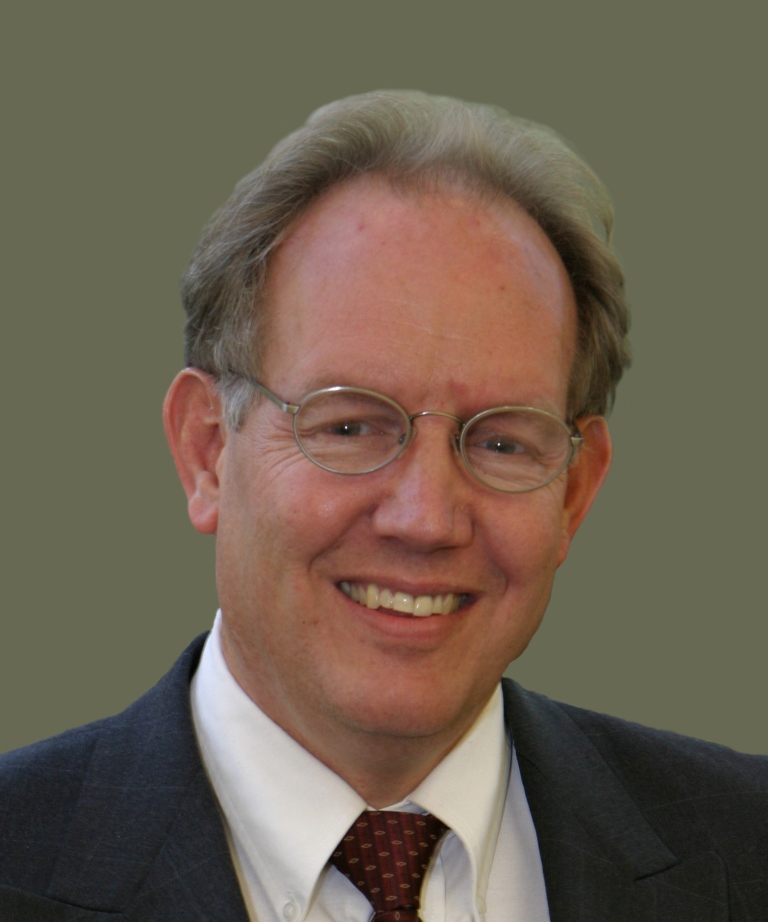
David Kirkham, PhD, JD, is a professor in the Department of Political Science, Brigham Young University. He came to the International Center for Law and Religion Studies in July 2007 from the George C. Marshall European Center for Security Studies in Garmisch-Partenkirchen, Germany, where he served as Associate Dean and Professor of International Politics and Democratic Studies. Dr. Kirkham has also been an Associate Professor of History, Director of International History, and Director of International Plans and Programs at the United States Air Force Academy. He also conducted international negotiations and diplomatic activities for several years for the US Government and United Nations, including as Senior Humanitarian Affairs Officer at the UN Office for the Coordination of Humanitarian Affairs in Geneva (with duties primarily in Africa). He has lived fifteen years of his adult life in five European countries (Germany, Switzerland, the United Kingdom, France and Belgium) and officially represented the United States and the UN in more than forty nations on six continents. He began his career in the early 1980s with a five-year law practice for the US Air Force in England and in Washington, D.C. Dr. Kirkham's writing and teaching address international human rights, global democratization, constitutionalism, revolution, diplomacy, the United Nations, international humanitarian relief, and the global challenges posed by ideological extremism. Most recently he is co-editor of two books on Islam, law, and politics in Europe. He speaks French and German and holds a PhD from George Washington University and a Juris Doctorate from the J. Reuben Clark Law School.
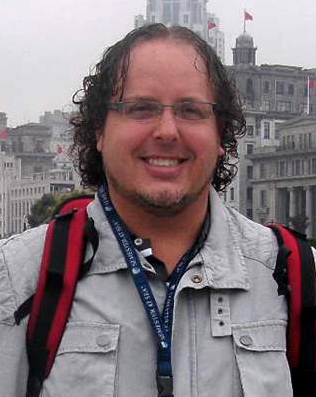
John Andrew Morrow was born in Montreal, Canada, in 1971. He received his doctorate from the University of Toronto where he acquired expertise in Hispanic, Native, and Islamic Studies. He has served as a faculty member and administrator at numerous colleges and universities, the most notable of which was the University of Virginia’s Semester at Sea program for which he taught Spanish, English, and Religious Studies while circumnavigating the globe. Dr. Morrow had authored and edited a wide body of books in various fields. In the area of Islamic Studies, his works include: Arabic, Islam, and the Allah Lexicon: How Language Shapes our Conception of God (Edwin Mellen, 2006), the Encyclopedia of Islamic Herbal Medicine (McFarland, 2011), Religion and Revolution: Spiritual and Political Islam in Ernesto Cardenal (Cambridge Scholars Publishing, 2012), Islamic Insights: Writings and Reviews (Ansariyan, 2012) and Islamic Images and Ideas: Essays on Sacred Symbolism (McFarland, 2013), and The Covenants of the Prophet Muhammad with the Christians of the World (Sophia Perennis, 2013) among many others. Dr Morrow is also a member of the Metis aboriginal community.
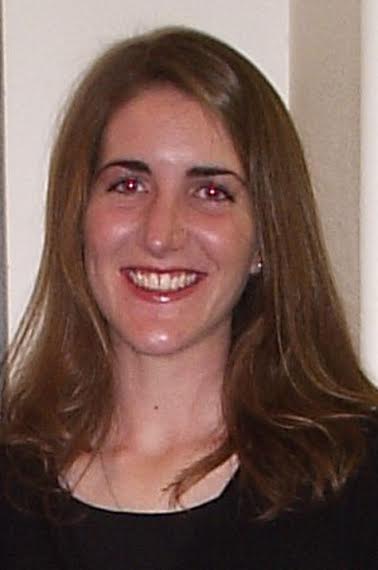
Eimi Priddis graduated from Brigham Young University in 2009 with a BA in English Language, then completed a Masters degree in Teaching English to Speakers of Other Languages in April 2012. While completing her Masters, she worked as an ESL (English as a Second Language) teacher at BYU's English Language Center. She also spent two summers as an intern teaching English in Japan. In September 2011, in pursuit of her longtime dream to learn more about law and religion issues, Eimi changed course and started law school. During summer 2012, after completing her first year of law school, she worked as an extern for the International Center for Law and Religion Studies, which included a month in Frankfurt, Germany at the Office of General Counsel for The Church of Jesus Christ of Latter-day Saints, and major contributions to the treatise, Religious Organizations and the Law. She continued to work with the Law and Religion Center throughout law school, until graduating in April 2014. Along with her concern for law and religion issues, Eimi also has particular interest in international law, immigration law, and family law.
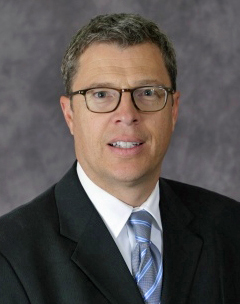
Brett G. Scharffs is Associate Dean for Research and Academic Affairs of Brigham Young University's J. Reuben Clark Law School, where he is Francis R. Kirkham Professor of Law and Associate Director of the International Center for Law and Religion Studies. His teaching and scholarly interests include comparative and international law and religion, jurisprudence and adjudication, and international business law. Professor Scharffs is a graduate of Georgetown University, where he received a BSBA in international business and an MA in philosophy. He was a Rhodes Scholar at Oxford University, where he earned a BPhil in philosophy. He received his JD from Yale Law School, where he was Senior Editor of the Yale Law Journal. Professor Scharffs was a law clerk on the U.S. Court of Appeals, D.C. Circuit, and worked as a legal assistant at the Iran-U.S. Claims Tribunal in The Hague. Before teaching at BYU, he worked as an attorney for the New York law firm, Sullivan & Cromwell. He has previously taught at Yale University and the George Washington University Law School, and is a visiting professor each year at Central European University in Budapest. In his 16-year academic career, Professor Scharffs has written more than 50 articles and book chapters, and has made over 150 scholarship presentations in 20 countries. His casebook, Law and Religion: National, International, and Comparative Perspectives, co-written with his colleague, W. Cole Durham, Jr., was published by Aspen / WoltersKluwer in 2010, second edition in preparation.
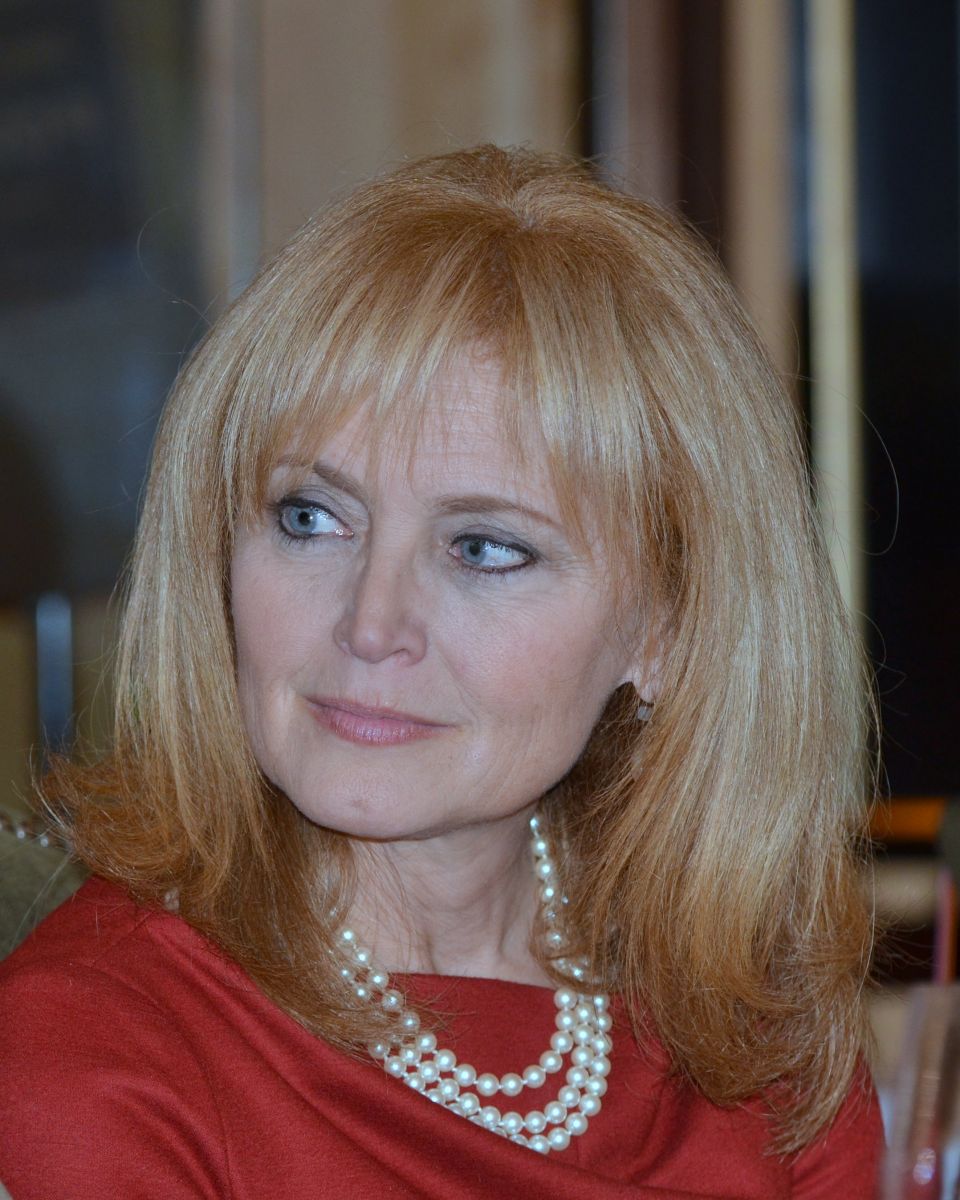
Katrina Lantos Swett, PhD, has been of member of the United States Commission on International Religious Freedom since her appointment in April of 2012 by Senator Harry Reid. She was elected to serve as USCIRF Chair in June 2012. After her year's service as Chair, she was reappointed to the Commission and currently serves as Vice Chair. She is the President of the Lantos Foundation for Human Rights and Justice – a human rights organization which she established in 2008 to carry on the work of her father, the late Congressman Tom Lantos. In addition she teaches Human Rights and U.S. Foreign Policy at Tufts University a subject she also taught at the University of Southern Denmark during her husband’s tenure as Ambassador to Denmark. While living in Copenhagen, Katrina led a successful advocacy effort to convince the Danish government to take action against illicit trafficking of women and children through Denmark. Katrina’s first job after law school was as a Legislative Assistant and later Deputy Counsel to the Criminal Justice sub-Committee of the Senate Judiciary Committee under then Senator Joe Biden. She currently serves on the Board of the Committee for Human Rights in North Korea, the Budapest based Tom Lantos Institute and on the New England College Board of Trustees. She graduated from Yale University with a degree in Political Science. She received a Juris Doctor degree from the University of California, Hastings College of the Law, and later earned a PhD in history at The University of Southern Denmark.
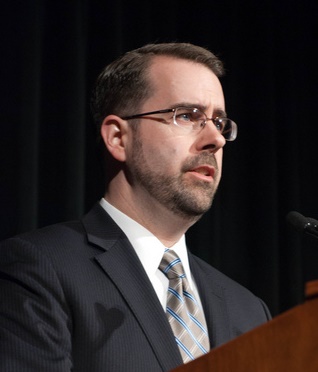
Knox Thames serves as the Director of Policy and Research at the U.S. Commission on International Religious Freedom (USCIRF). The Commission is an independent, U.S. government advisory body established to monitor religious freedom conditions worldwide and make policy recommendations to the President, the Secretary of State, and the Congress. Mr. Thames is also an Adjunct Professor at the U.S. Army War College and is a member of the State Department’s Religion and Foreign Policy Working Group. Before USCIRF, he was the lead State Department officer on religious freedom issues in multilateral fora, such as the UN and OSCE, serving in the Office of International Religious Freedom. Mr. Thames was also Counsel for six years at the U.S. Commission on Security and Cooperation in Europe (the Helsinki Commission), focusing on religious freedom and religious tolerance, issues involving refugees and internally displaced persons, and democracy and human rights in Central Asia. From 2004-2012, the State Department appointed Mr. Thames to the OSCE Panel of Experts on Freedom of Religion or Belief, and in 2010 he was invited to join the Council on Foreign Relations as a term member. Mr. Thames earned a J.D. with honors from the American University Washington College of Law. He also holds a Master's in International Affairs from the American University School of International Service. He was the lead author of International Religious Freedom Advocacy: A Guide to Organizations, Law, and NGOs published by Baylor University Press.
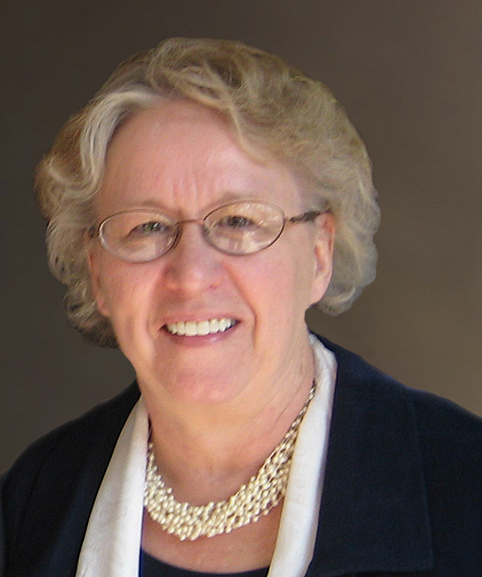
Donlu Thayer is Senior Editor at the International Center for Law and Religion Studies, with responsibility for overseeing print and electronic publications, including the Center’s daily Law and Religion Headlines service. Donlu is also a casenote editor for the Oxford Journal of Law and Religion, and she provides editorial management for the forthcoming Encyclopedia of Law and Religion (Brill/Netherlands). Before joining the Center in 2009, Donlu had a long career as a teacher, writer, and freelance editor. She worked as an editor for BYU Press and was for many years an editor for the New World Archaeological Foundation. She was a Lecturer in the Brigham Young University Honors Program and English Department intermittently during 1970–2009, teaching composition, technical writing, creative writing, and thesis writing. Most recently, she created and taught the Honors Program course Advanced Writing for Pre-Law Students. At the time of her retirement in 2009 she received the JoAnn Britsch Teaching Excellence Award. Donlu attended Brigham Young University as a Karl G. Maeser Scholar, graduating in 1970 as co-valedictorian of the College of Humanities, magna cum laude, Honors Program High Honors with Distinction, with a double major in French and English, a University minor in German, and secondary teaching certification. She received a master’s degree in American Literature from BYU in 1972, and in 2004 she graduated from the J. Reuben Clark Law School, where she received the Faculty Award for Meritorious Service, the J. Reuben Clark Public Interest Service Award, and the Schooley Outstanding Mediator Award and was Justice of the Cowley Chapter of Pi Alpha Delta Law Fraternity International. A certified mediator with specialized training in domestic mediation and high-risk victim offender dialogue, Donlu was for a brief time executive director of Community Dispute Resolution Services of Utah County. She is a member of the Utah State Bar.
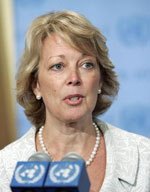
Jackie Wolcott is Executive Director of the U.S. Commission on International Religious Freedom. Appointed to this position in February 2010, she has a long career in government executive positions, most recently as Special Envoy for Nuclear Nonproliferation (2008 - 2009). Prior to this appointment, she served from February 2006 to 2008 as U.S. Ambassador to the UN Security Council. Mrs. Wolcott also was Ambassador and United States Permanent Representative to the Conference on Disarmament in Geneva and Special Representative of the President of the United States for the Non-Proliferation of Nuclear Weapons from December 2003 through February 2006. She served as Deputy Assistant Secretary of State in the Bureau of International Organization Affairs from 2001 to 2003 and from 1990 to 1993. Ambassador Wolcott has served for 28 years in the federal government, including nine years on Capitol Hill (Senate and House). She held several additional positions relating to national security affairs, including Associate Director for National Security in the Office of Presidential Personnel, The White House; White House Liaison for the Department of State; and Special Assistant for Congressional Affairs in the Bureau of Near Eastern and South Asian Affairs, Department of State. Ambassador Wolcott currently serves as a member of the Advisory Board of United Against Nuclear Iran, a non-profit organization dedicated to preventing a nuclear Iran and exposing Iran as a major violator of human rights at home and abroad.
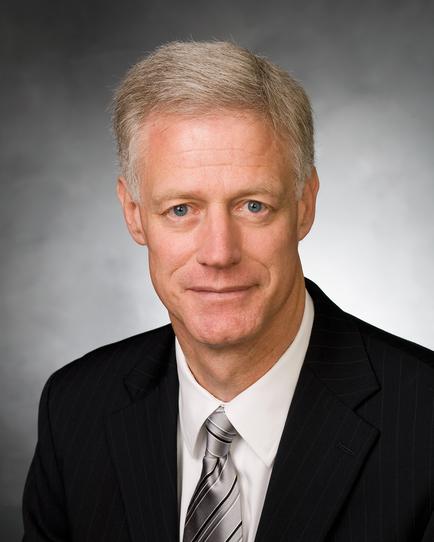
Kevin J Worthen began serving as the 13th president of Brigham Young University on May 1, 2014. He previously served as BYU’s advancement vice president and as dean of its J. Reuben Clark Law School, where he was the Hugh W. Colton Professor of Law. President Worthen was born in Dragerton (now East Carbon–Sunnyside), Utah, and grew up in nearby Price. After serving a mission for The Church of Jesus Christ of Latter-day Saints in Monterrey, Mexico, he earned an associate degree at the College of Eastern Utah (now USU Eastern). He then received his bachelor of arts in political science and his juris doctorate from BYU. Following his graduation from the BYU Law School, President Worthen served as a law clerk to Judge Malcolm R. Wilkey of the U.S. Court of Appeals for the D.C. Circuit and Justice Byron R. White of the U.S. Supreme Court. After three years of private practice with the law firm of Jennings, Strouss & Salmon in Phoenix, Arizona, President Worthen joined the BYU Law School faculty in 1987. In 1994, he was a Fulbright Scholar at the University of Chile Law School in Santiago. He has published extensively on a number of legal topics, with particular emphasis on federal Indian law and the rights of indigenous peoples.
